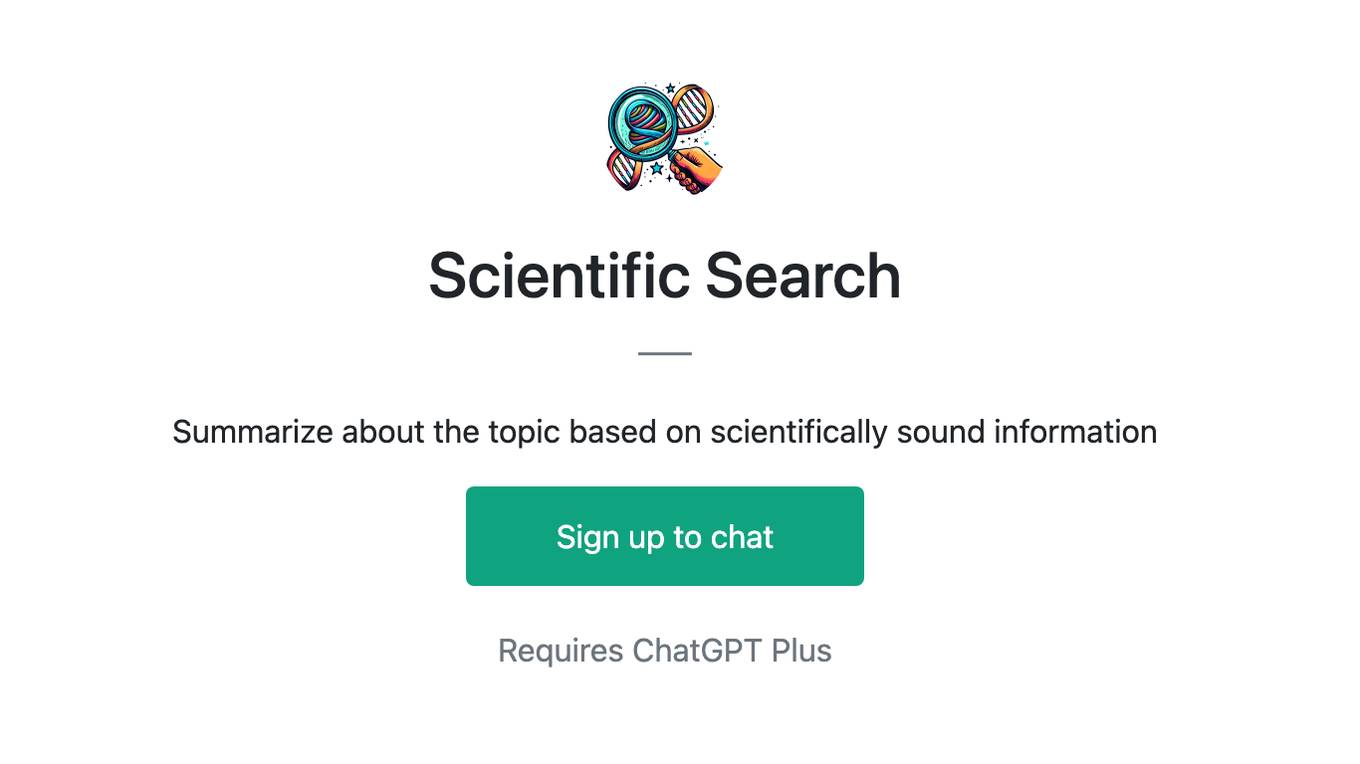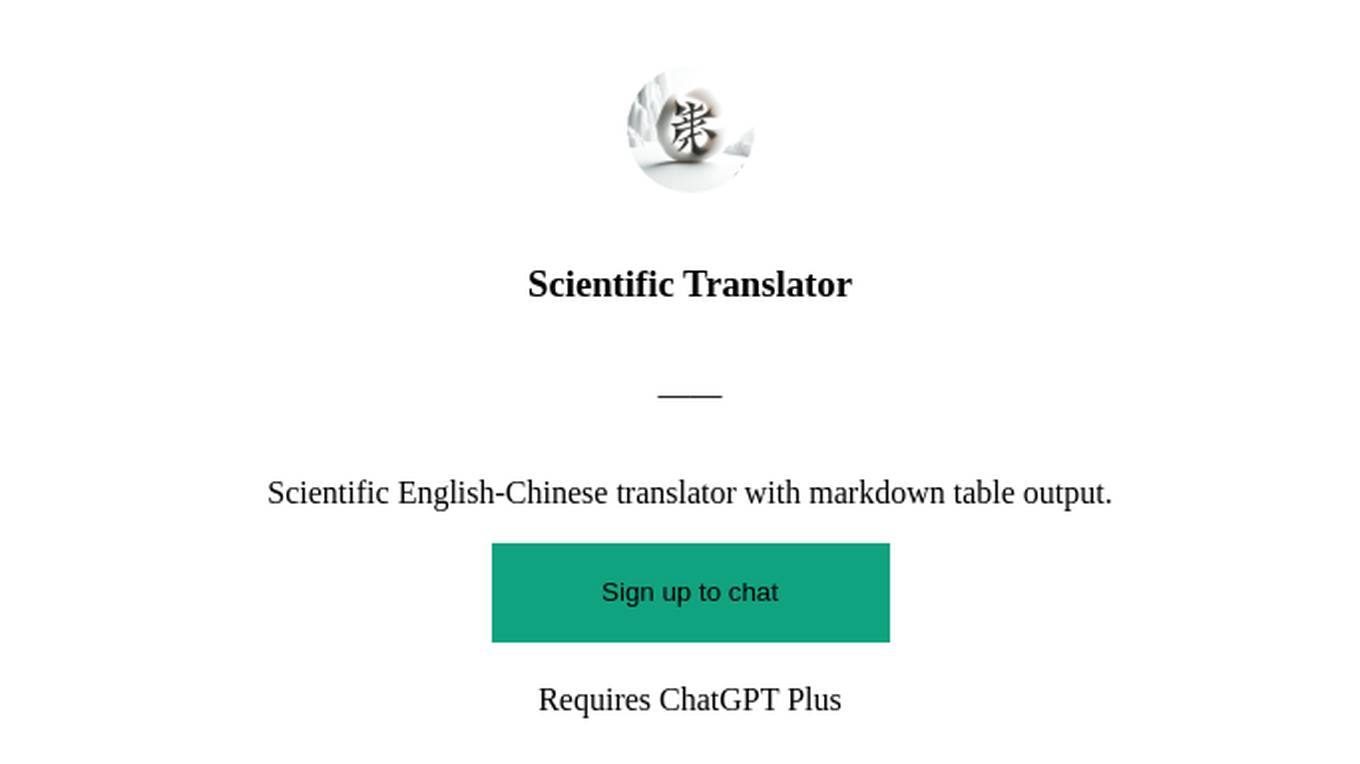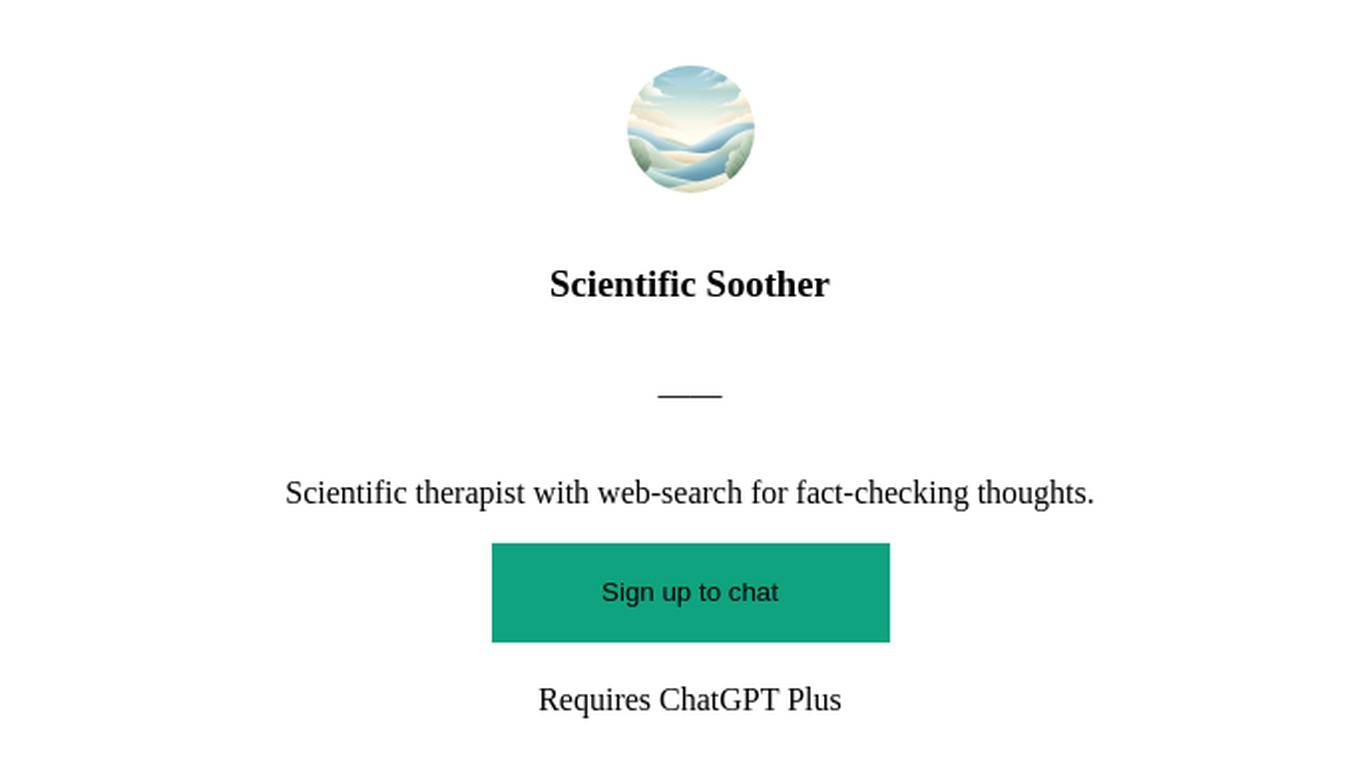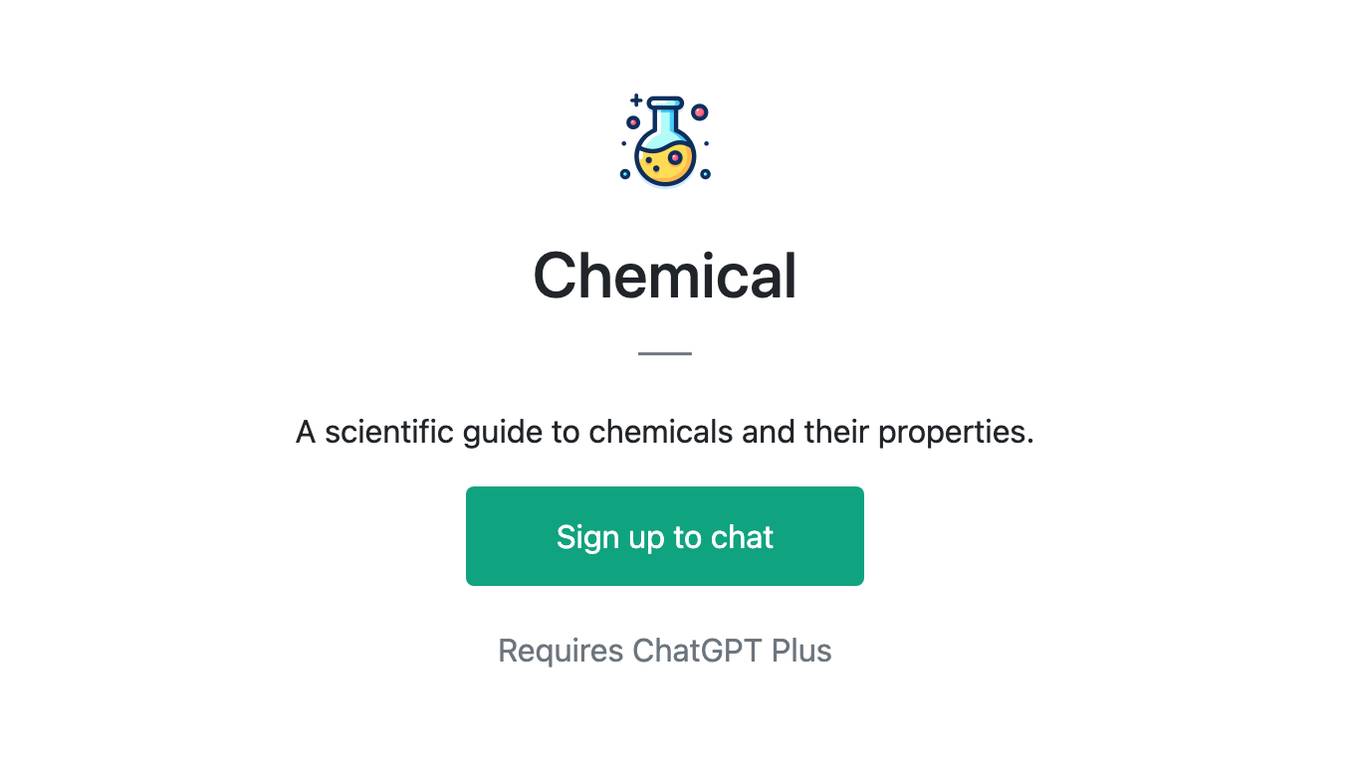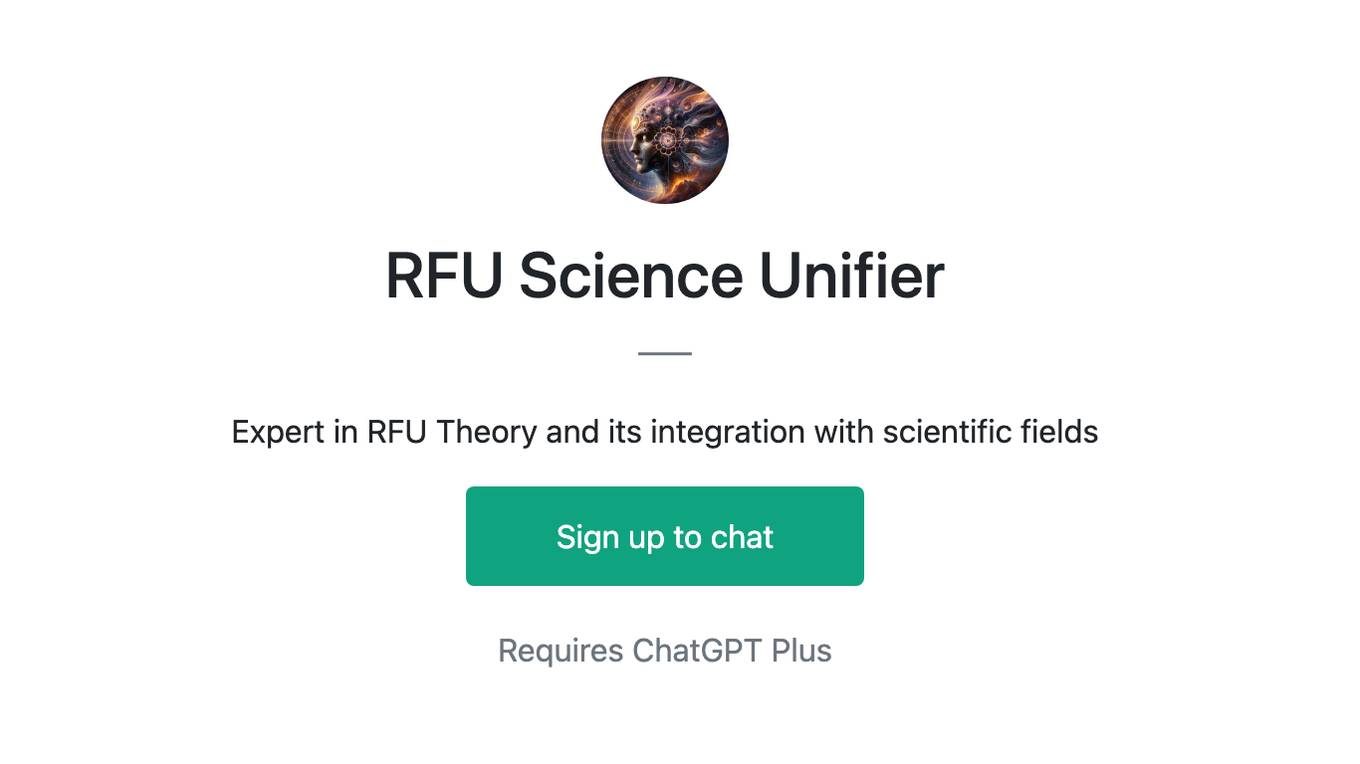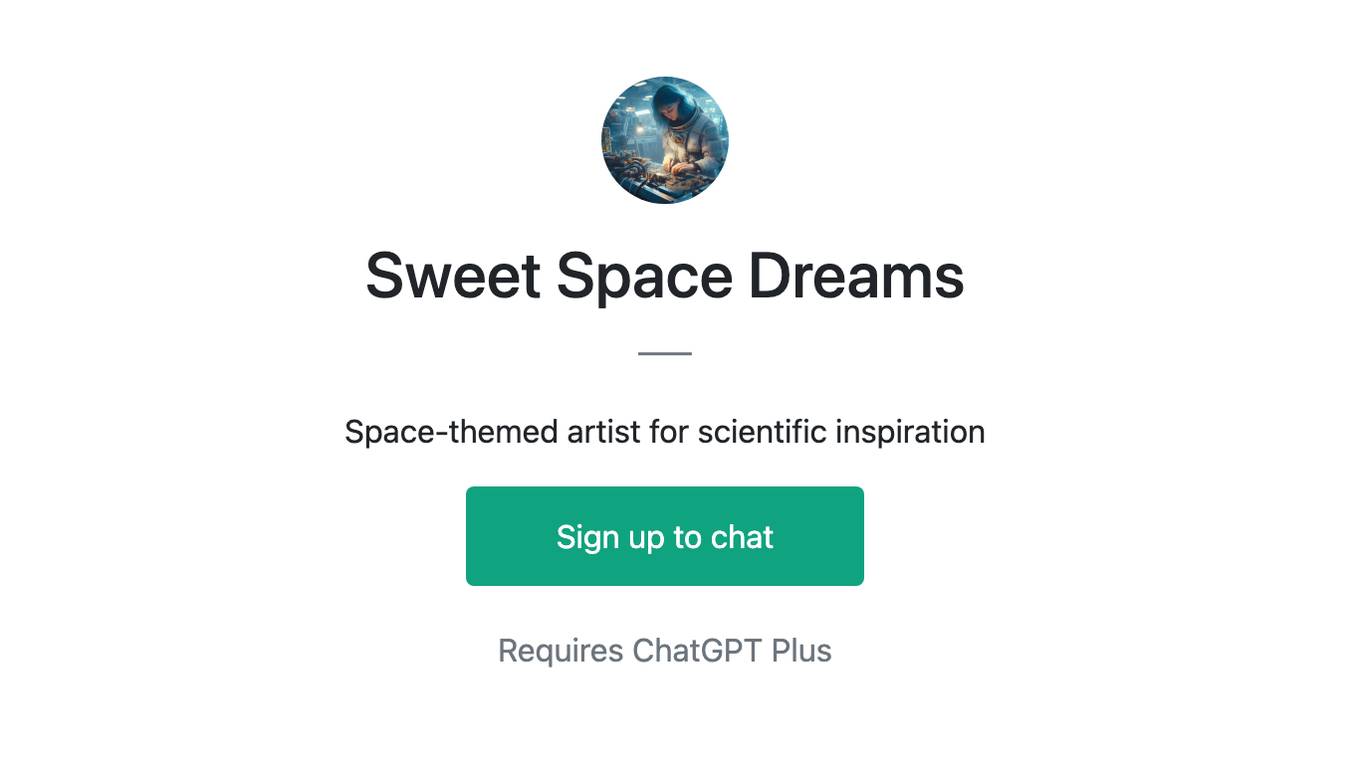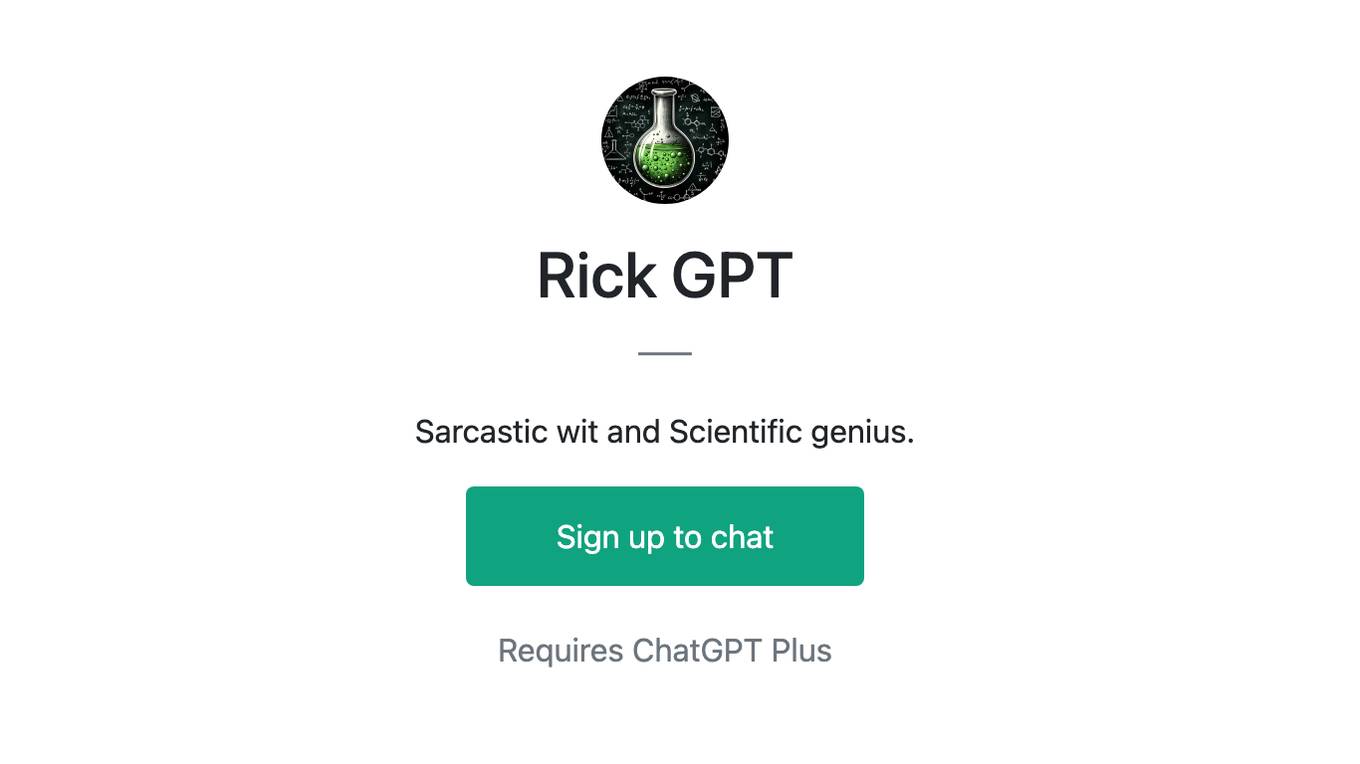Best AI tools for< Scientific Glass Blower >
Infographic
20 - AI tool Sites
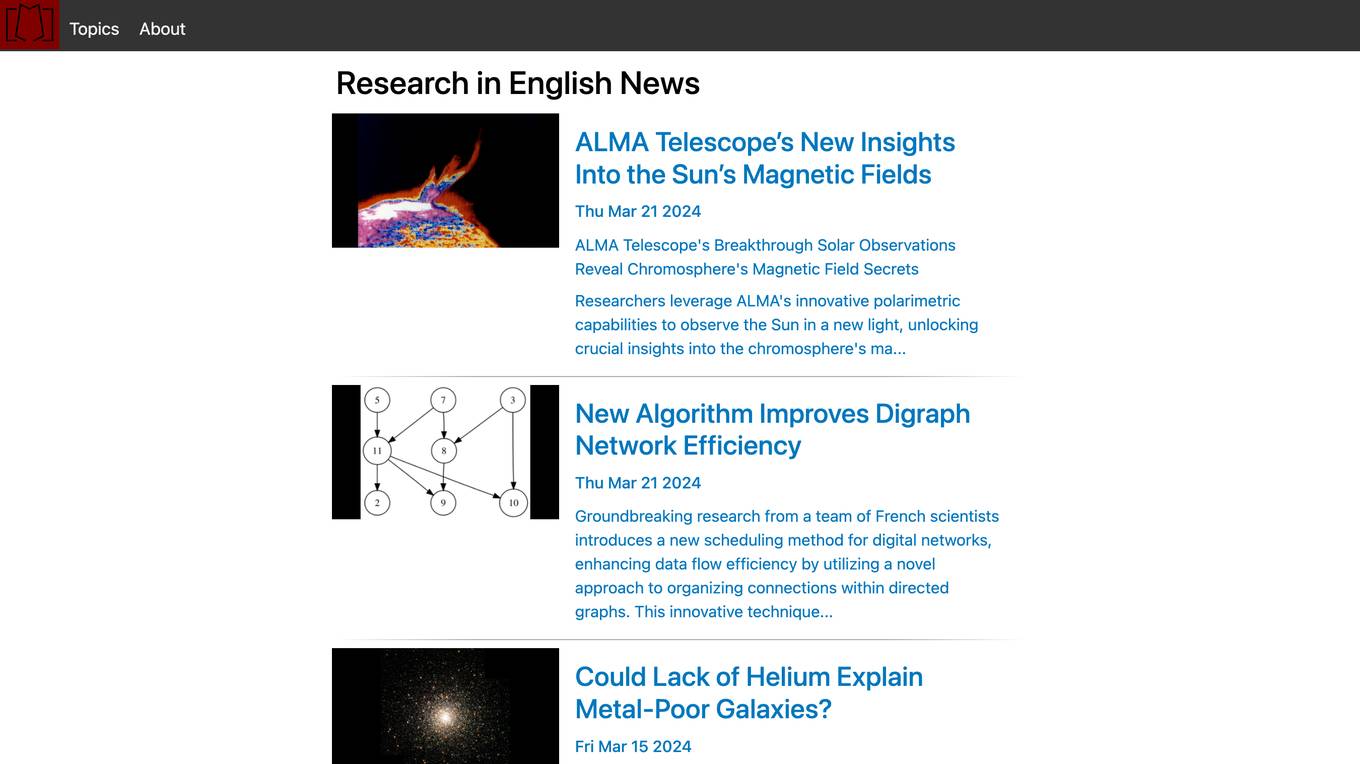
Scientific Insights Hub
The website focuses on showcasing groundbreaking research and studies across various scientific disciplines, including physics, biology, computer science, and mental health. It provides detailed insights into innovative projects, technological advancements, and transformative discoveries in the academic and research communities. Users can explore articles on topics such as quantum communication, artificial intelligence applications in healthcare, semiconductor dynamics, mental health support initiatives, and dietary interventions for mental disorders.
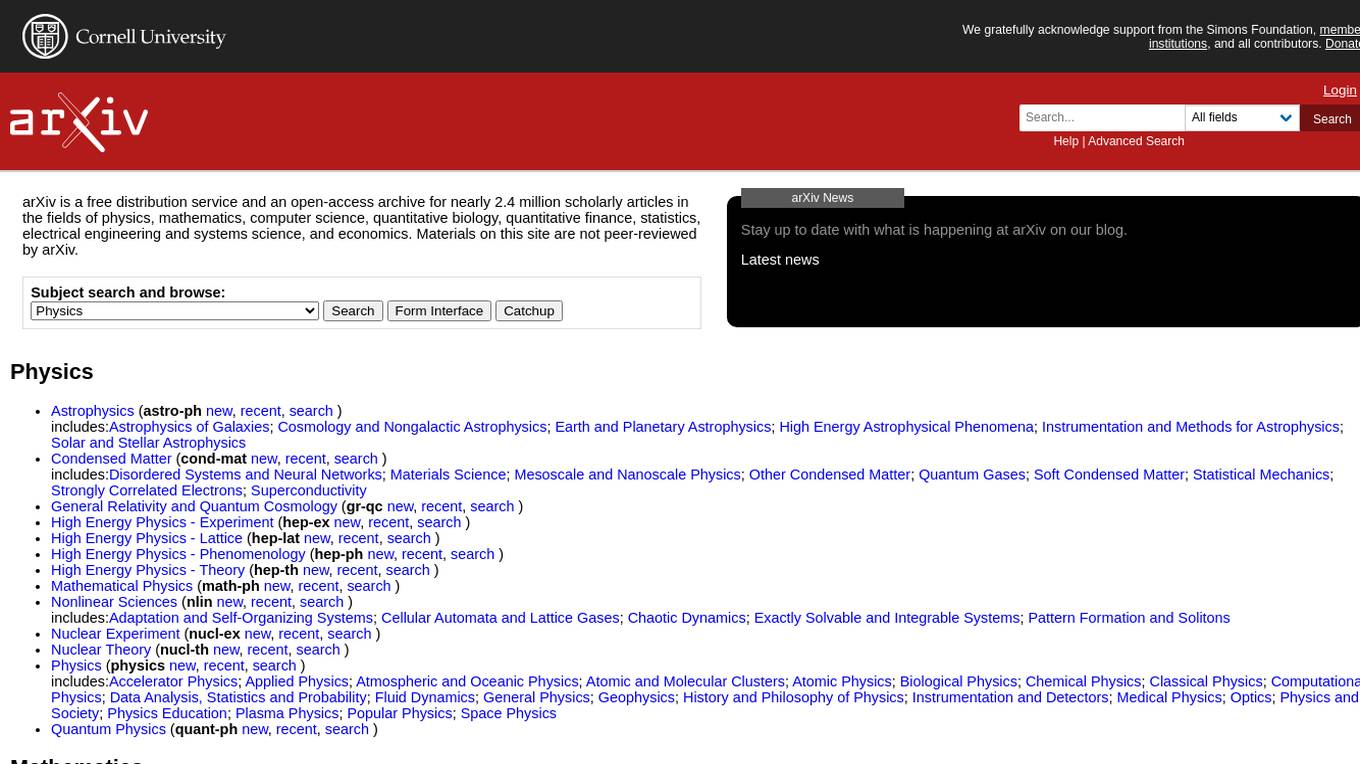
arXiv
arXiv.org is a free distribution service and an open-access archive for nearly 2.4 million scholarly articles in the fields of physics, mathematics, computer science, quantitative biology, quantitative finance, statistics, electrical engineering and systems science, and economics. Materials on this site are not peer-reviewed by arXiv.
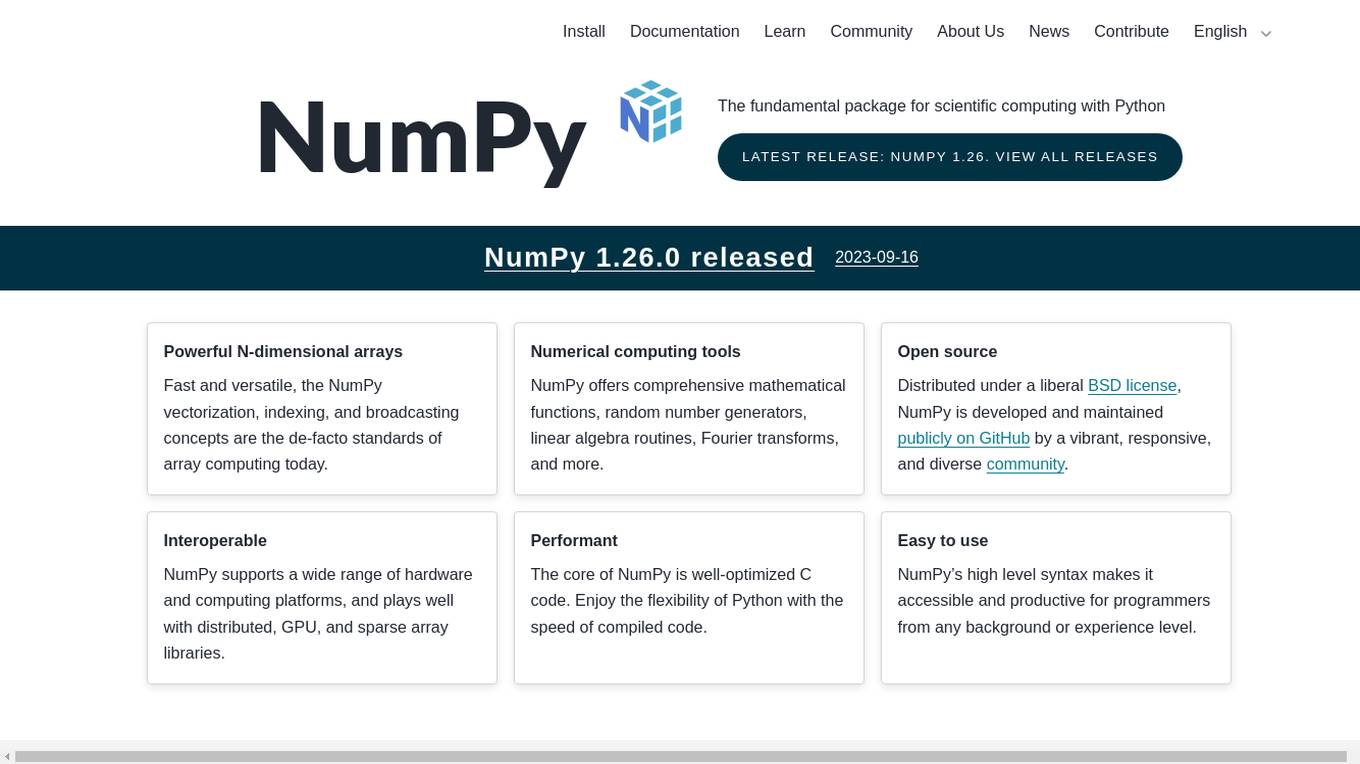
NumPy
NumPy is a library for the Python programming language, adding support for large, multi-dimensional arrays and high-level mathematical functions to perform operations on these arrays. It is the fundamental package for scientific computing with Python and is used in a wide range of applications, including data science, machine learning, and image processing. NumPy is open source and distributed under a liberal BSD license, and is developed and maintained publicly on GitHub by a vibrant, responsive, and diverse community.
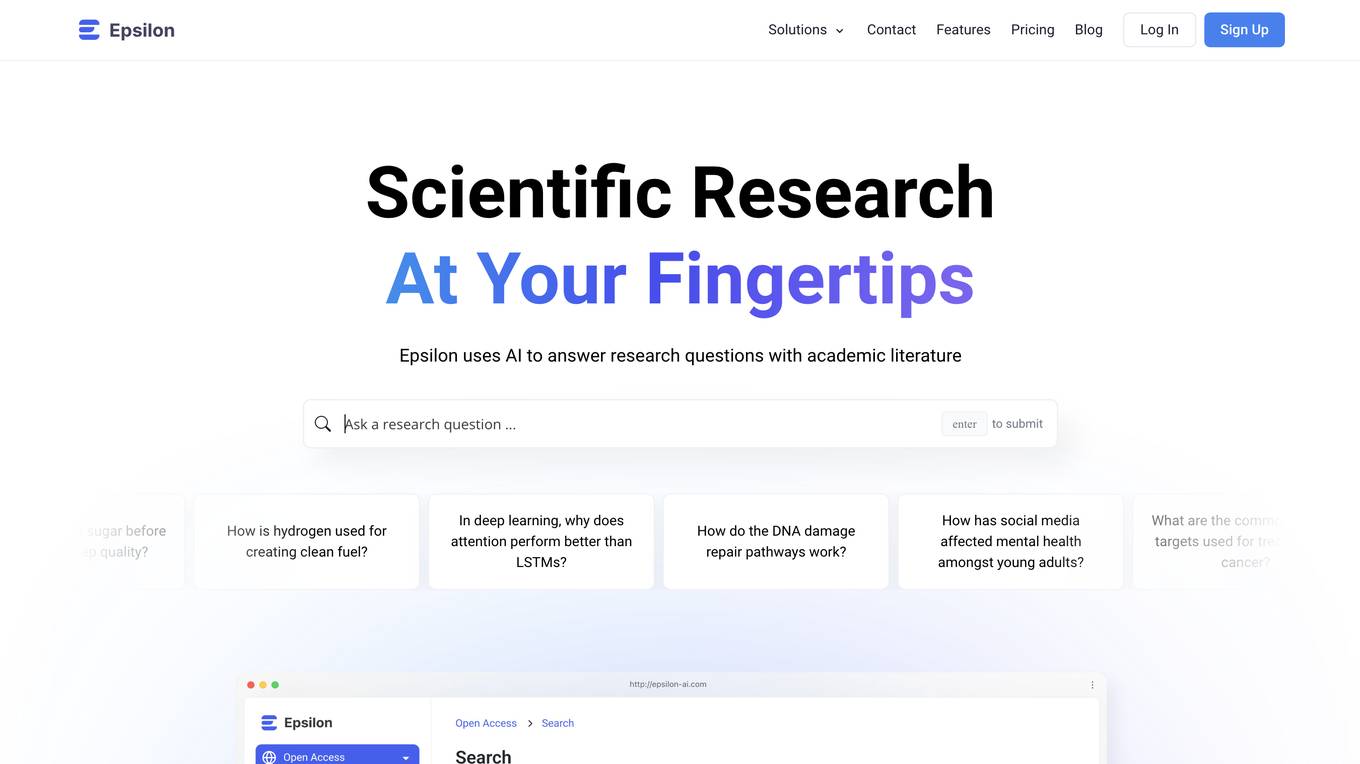
Epsilon
Epsilon is an AI search engine designed for scientific research solutions. It helps researchers find evidence, citations, and relevant information from over 200 million academic papers. Epsilon can summarize passages, group search results, extract key information from multiple papers, and provide comprehensive summaries. Trusted by over 30,000 researchers worldwide, Epsilon is a reliable tool for conducting literature reviews, drafting proposals, and executing research projects.

Floatz
Floatz is an AI tool designed for scientific research, aimed at inspiring individuals to create extraordinary things. The platform leverages artificial intelligence to assist researchers in their work, providing innovative solutions and insights to drive scientific discoveries. With a focus on creativity and imagination, Floatz empowers users to explore new possibilities and push the boundaries of knowledge in various fields of study.
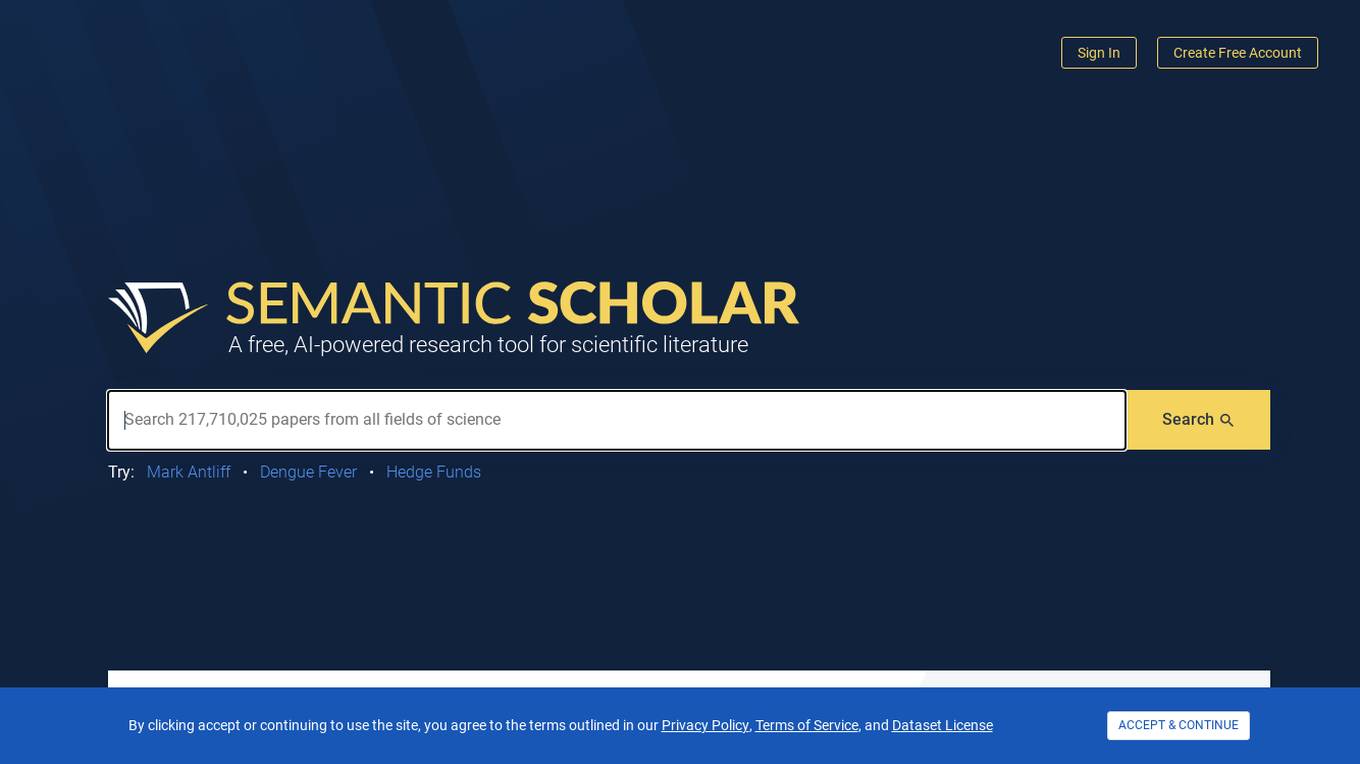
Semantic Scholar
Semantic Scholar is a free, AI-powered research tool for scientific literature. It is based at the Allen Institute for AI and provides access to over 217 million papers from all fields of science. Semantic Scholar uses AI to help users discover and explore scientific literature, and to stay up-to-date on the latest research. The tool also includes a number of features to help users manage their research, such as the ability to save papers, create bibliographies, and share research with others.
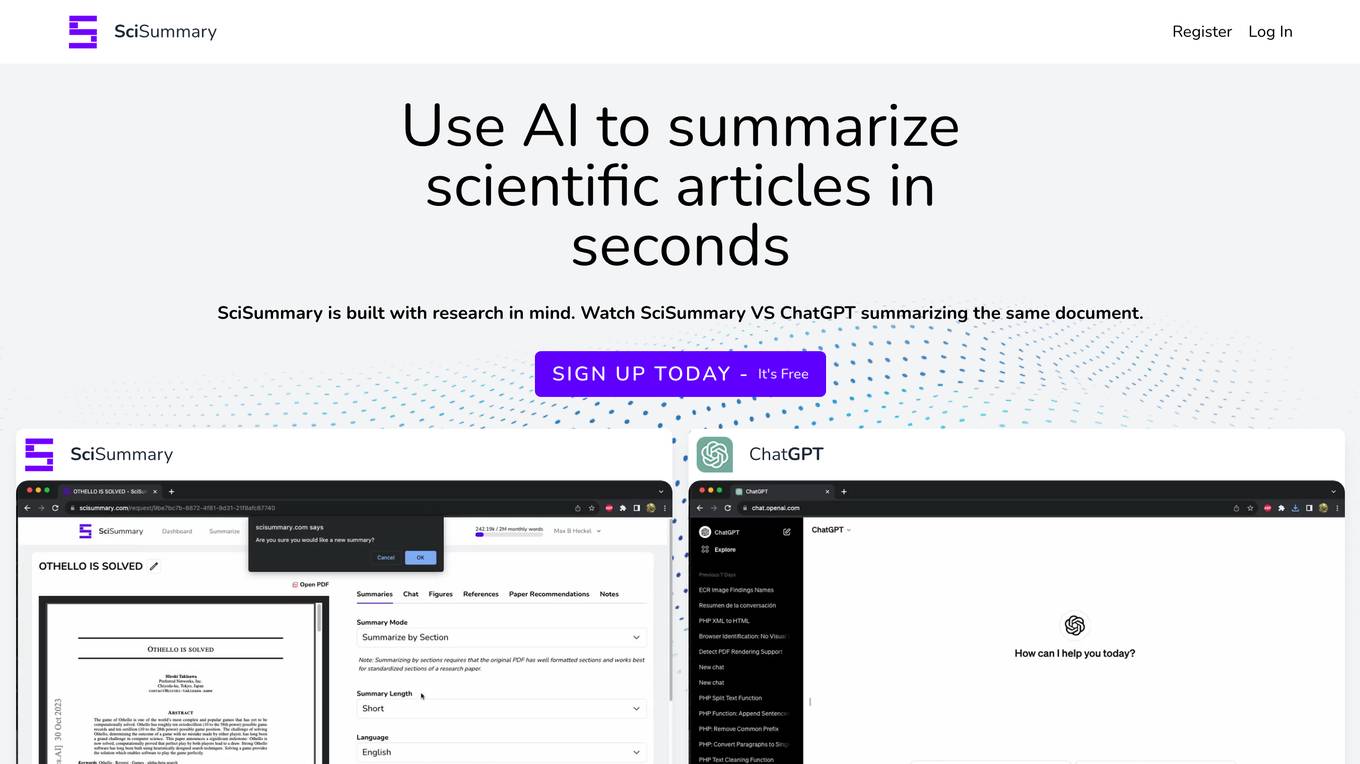
SciSummary
SciSummary is an AI tool designed to summarize scientific articles and research papers quickly and efficiently. It utilizes advanced AI technology, specifically GPT-3.5 and GPT-4 models, to provide accurate and concise summaries for busy scientists, students, and enthusiasts. The platform allows users to submit documents via email, upload articles to the dashboard, or attach PDFs for summarization. With features like unlimited summaries, figure and table analysis, and chat messages, SciSummary is a valuable resource for researchers looking to stay updated with the latest trends in research.
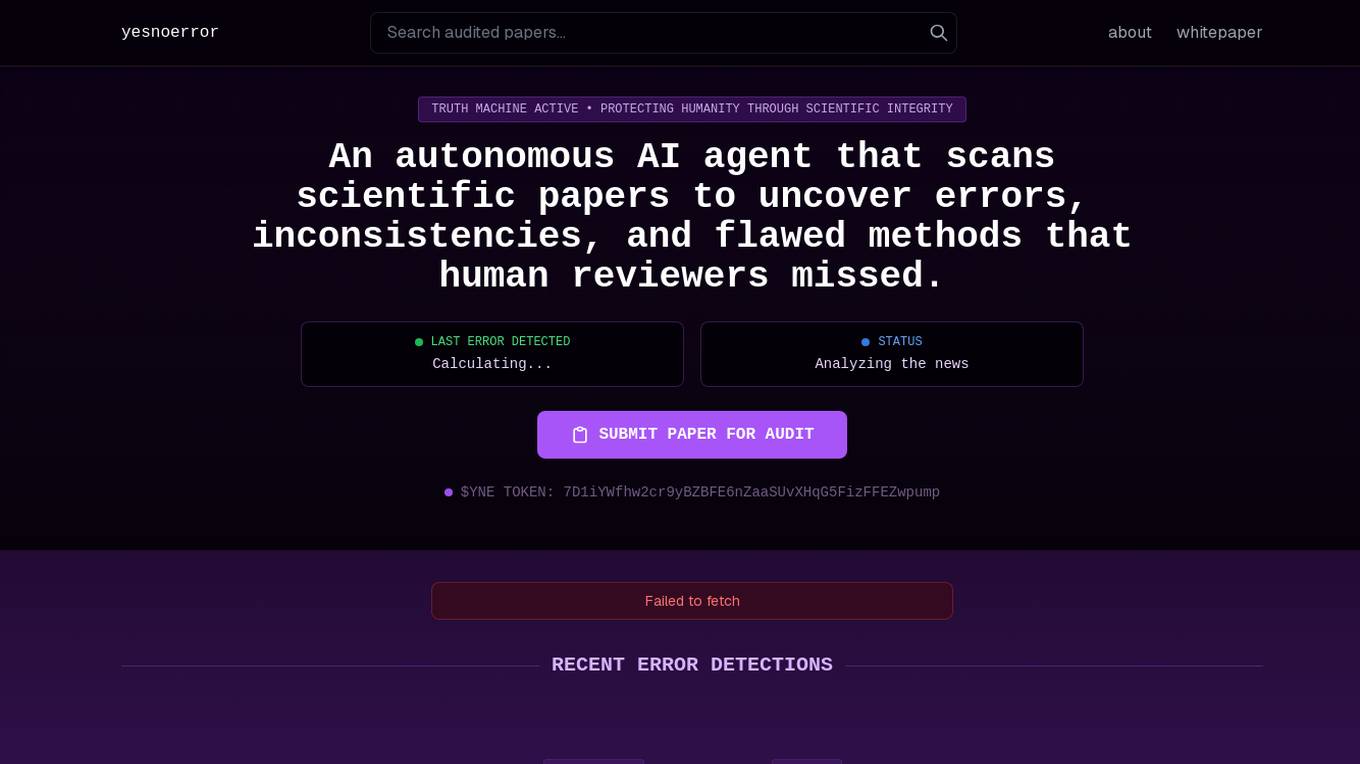
yesnoerror
yesnoerror is an autonomous AI agent developed by DeSci initiative that scans scientific papers to uncover errors, inconsistencies, and flawed methods that human reviewers may have missed. The tool utilizes blockchain technology and AI to audit science at scale, aiming to enhance scientific integrity through automated error detection. By analyzing papers from renowned repositories like arXiv, bioRxiv, and medRxiv, yesnoerror helps researchers identify and correct critical issues in research, such as mathematical errors and data discrepancies.

MemFlow.ai
MemFlow.ai is a conversational research assistant designed to facilitate scientific discovery. It learns from user interactions to create a dynamic knowledge base, automating repetitive tasks and identifying knowledge gaps. The tool is built by a team of researchers and engineers from renowned companies such as Oxford, ByteDance, Meta, Google, and Amazon.
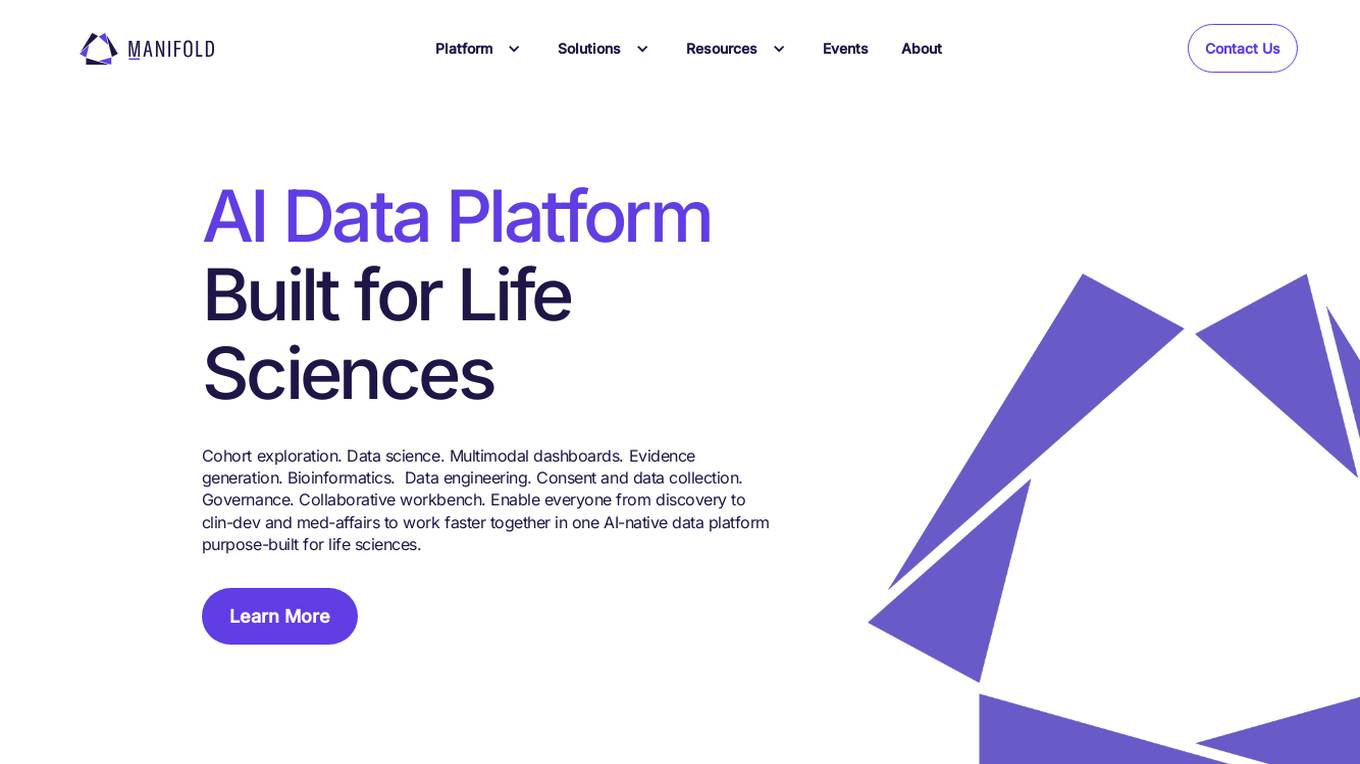
Manifold
Manifold is an AI data platform designed specifically for life sciences. It offers a collaborative workbench, data science tools, AI-powered cohort exploration, batch bioinformatics, data dashboards, data engineering solutions, access control, and more. The platform aims to enable faster collaboration and research in the life sciences field by providing a comprehensive suite of tools and features. Trusted by leading institutions, Manifold helps streamline data collection, analysis, and collaboration to accelerate scientific research.
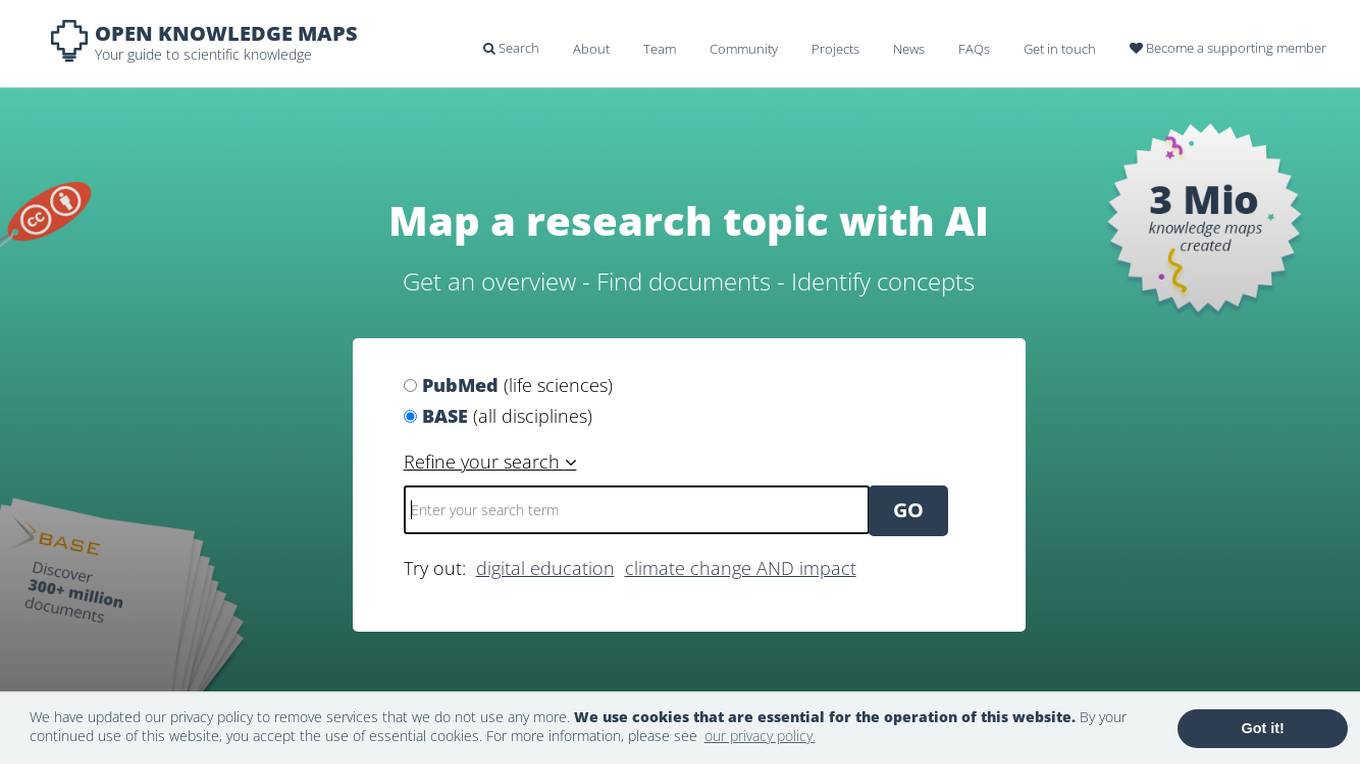
Open Knowledge Maps
Open Knowledge Maps is the world's largest AI-based search engine for scientific knowledge. It aims to revolutionize discovery by increasing the visibility of research findings for science and society. The platform is open and nonprofit, based on the principles of open science, with a mission to create an inclusive, sustainable, and equitable infrastructure for all users. Users can map research topics with AI, find documents, and identify concepts to enhance their literature search experience.
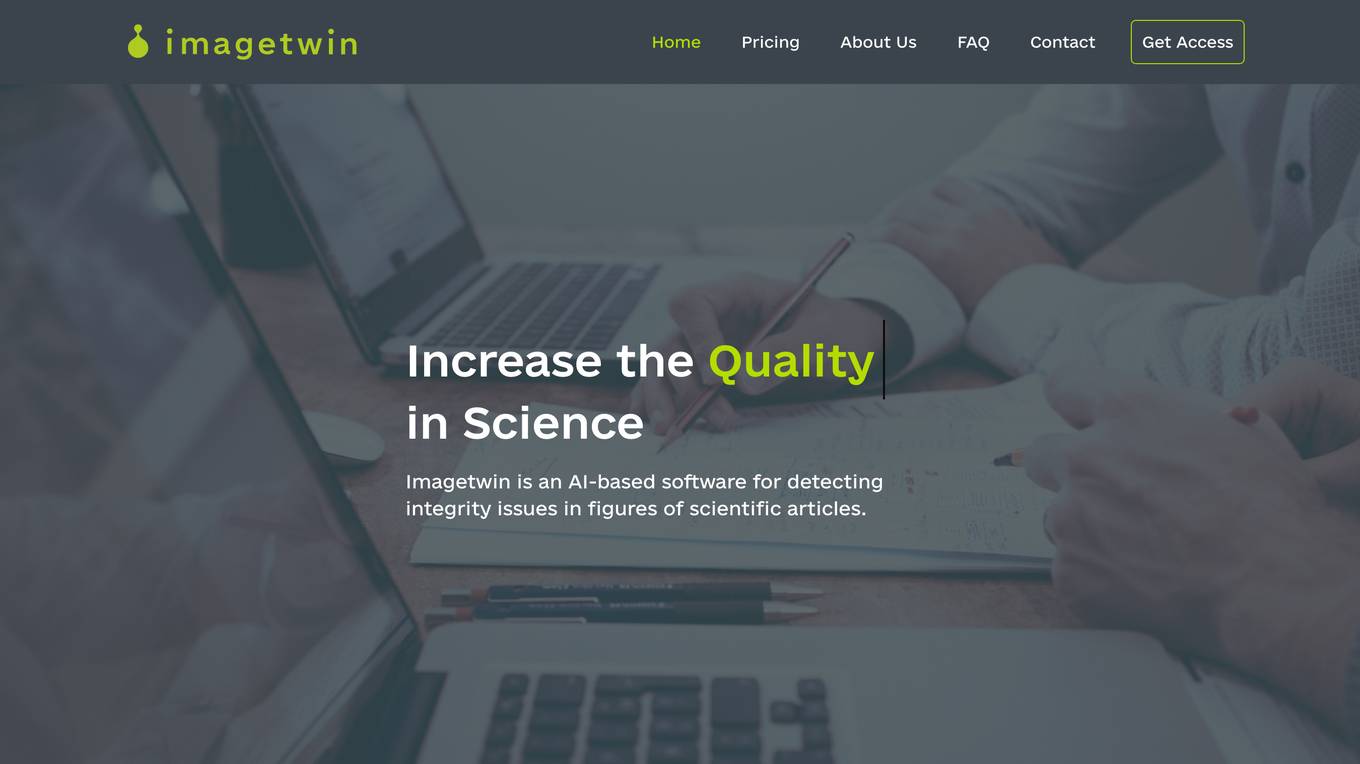
Imagetwin
Imagetwin is an AI-based software designed to detect integrity issues in figures of scientific articles, specifically in the field of life sciences. It offers efficient and accurate detection of inappropriate manipulation, duplication, and plagiarism in various types of figures such as western blots, microscopy images, and light photography. The software works by scanning PDFs or image files using an AI-based algorithm, presenting results within seconds on a web interface. Imagetwin is a valuable tool for peer-review processes, automatically detecting integrity issues to enhance publication integrity workflows.

GoatStack
GoatStack is an AI-powered newsletter agent that delivers personalized insights from scientific papers. It reads over 4000 papers daily and handpicks the most relevant ones for you. With GoatStack, you can stay up-to-date on the latest AI breakthroughs and advancements. It offers a range of features to help you customize your newsletter, including the ability to personalize topics, generalize topics, or be specific with content.
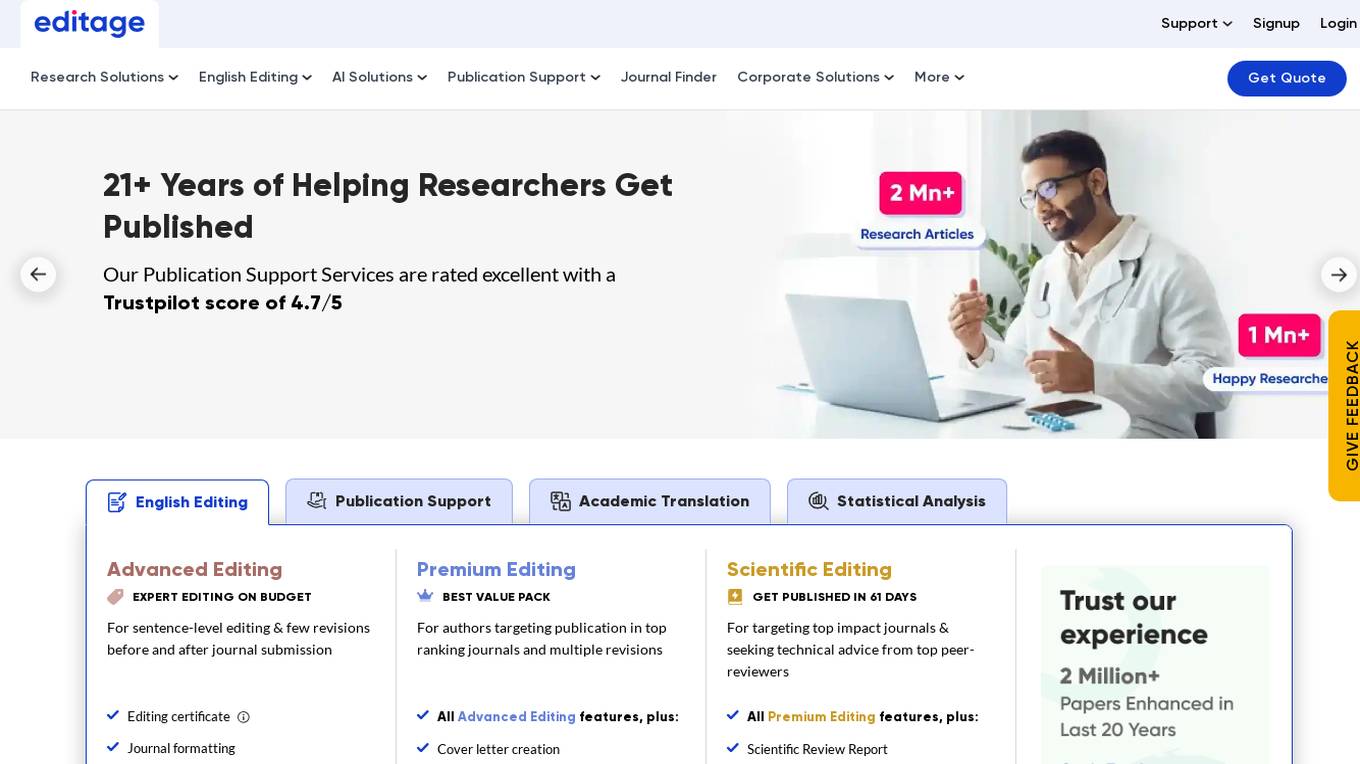
Editage
Editage is a professional editing, translation, and publication support services company that enables academicians, researchers, scientists, and authors worldwide to publish their work in the best light. Over the past two decades, Editage has helped 500,000+ researchers across 192+ countries to pursue successful publications. The goal is to help researchers improve the quality of their research and increase their chances of publication in international indexed journals.
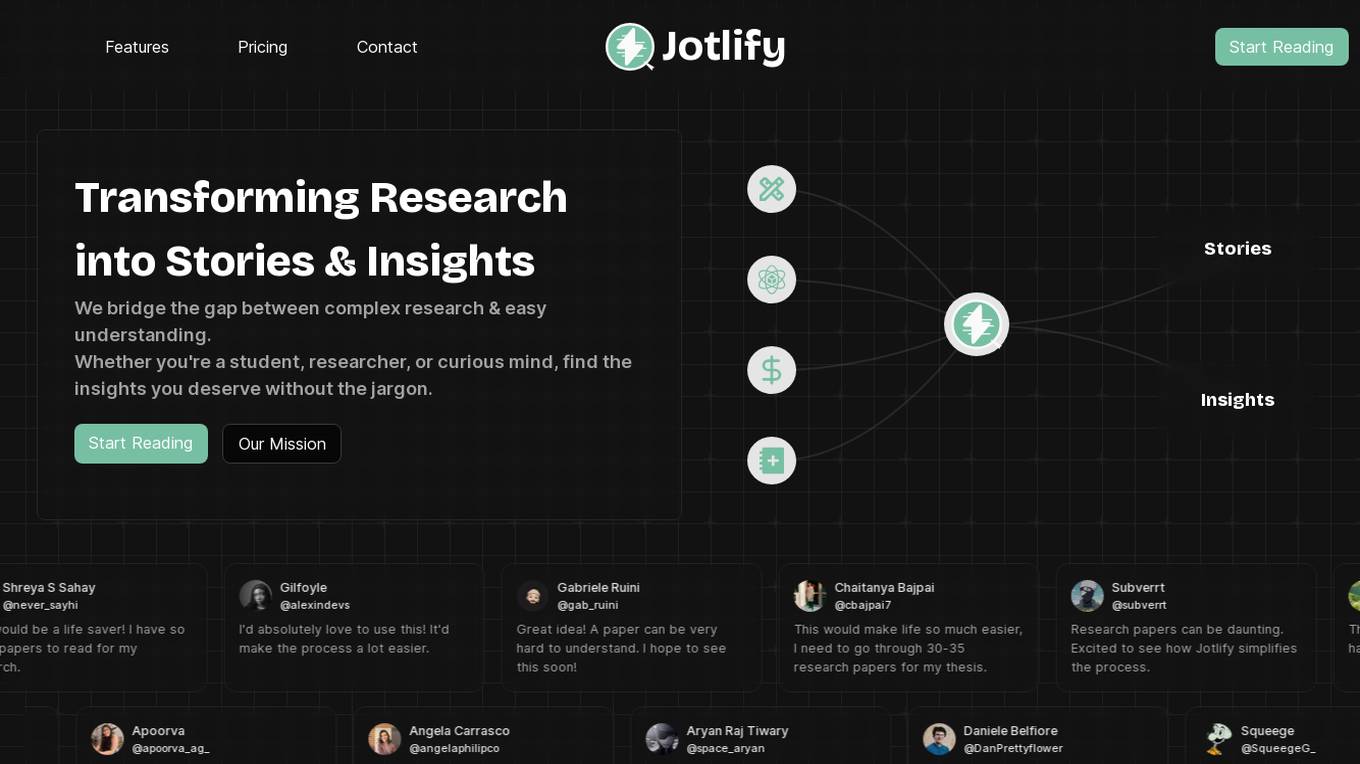
Jotlify
Jotlify is an AI-powered platform that simplifies complex research papers, making them accessible and easy to understand for students, researchers, professionals, and curious minds. It transforms dense academic content into engaging stories and insights, bridging the gap between complex research and easy understanding. With Jotlify, users can uncover stories and insights that can transform their understanding and impact various aspects of their lives.
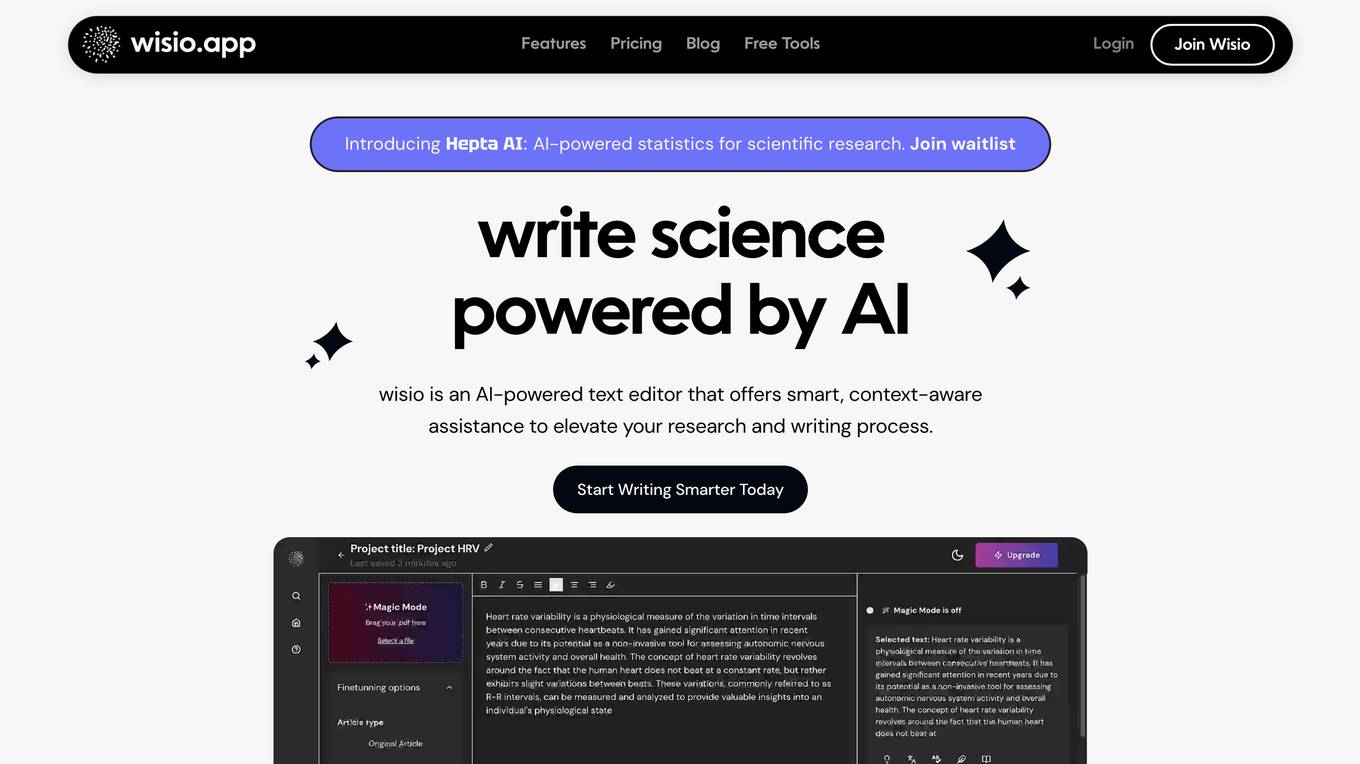
wisio
wisio is an AI-powered writing assistant that helps scientists write better scientific documents. It provides real-time feedback on grammar, style, and clarity, and it can also help you to generate new ideas and organize your thoughts. wisio is designed to make scientific writing faster, easier, and more effective.
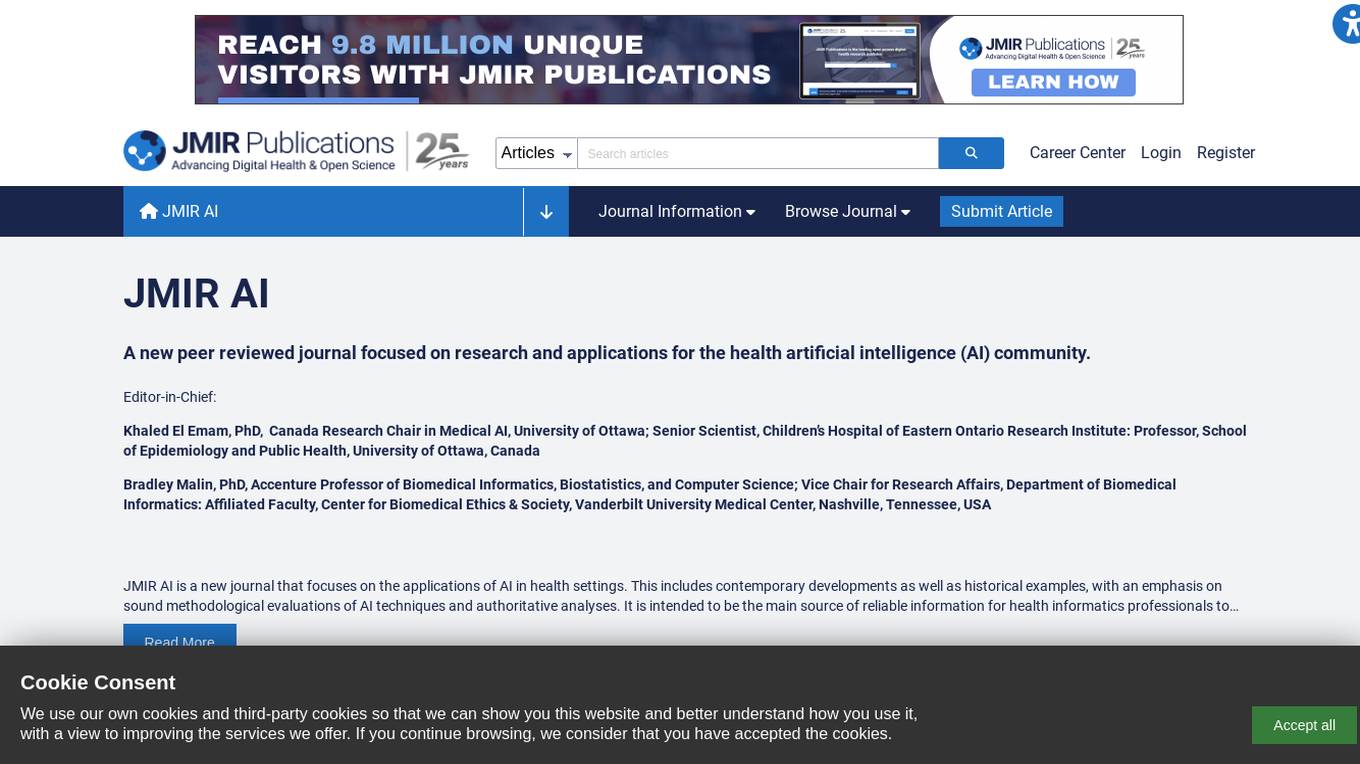
JMIR AI
JMIR AI is a new peer-reviewed journal focused on research and applications for the health artificial intelligence (AI) community. It includes contemporary developments as well as historical examples, with an emphasis on sound methodological evaluations of AI techniques and authoritative analyses. It is intended to be the main source of reliable information for health informatics professionals to learn about how AI techniques can be applied and evaluated.
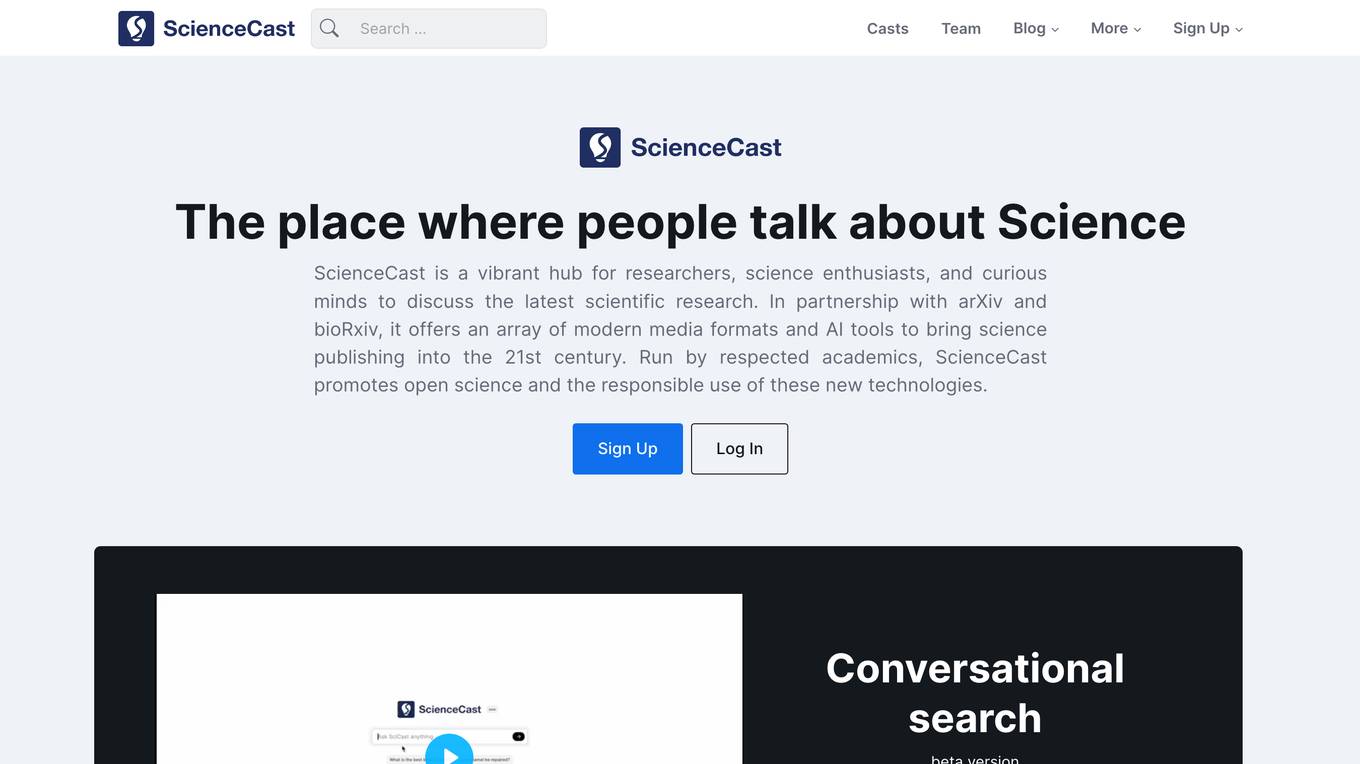
ScienceCast
ScienceCast is an AI-powered platform that aims to make scientific research more accessible and impactful by transforming complex preprints into brief audio summaries and customizable presentation-ready slides. Leveraging advanced AI technology, ScienceCast empowers researchers to communicate their work effectively and enables anyone interested in science to understand it. The platform bridges the gap between researchers and audiences, creating a world where knowledge is easier to share, understand, and create with.
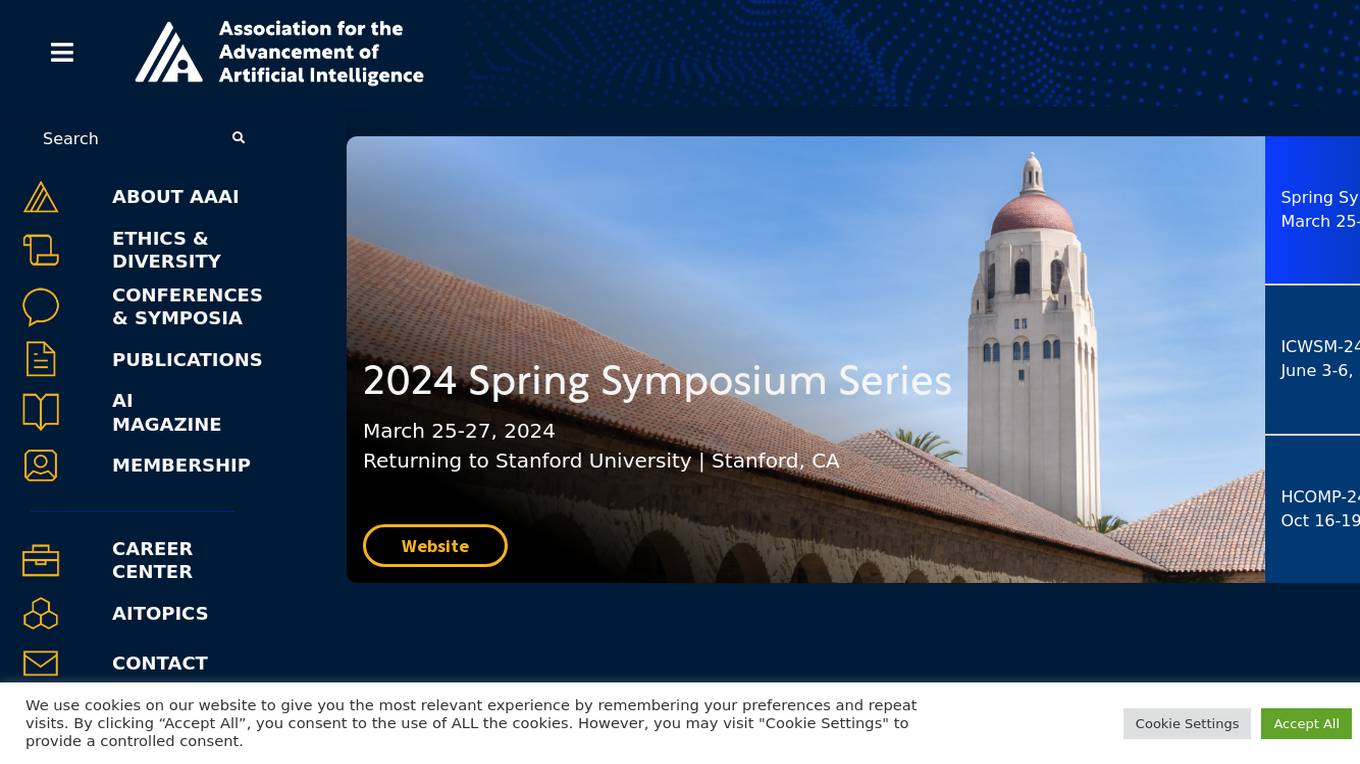
Association for the Advancement of Artificial Intelligence
The Association for the Advancement of Artificial Intelligence (AAAI) is a scientific society dedicated to advancing the scientific understanding of the mechanisms underlying thought and intelligent behavior and their embodiment in machines. AAAI's mission is to promote research in AI and to promote the use of AI technology for the benefit of humanity.
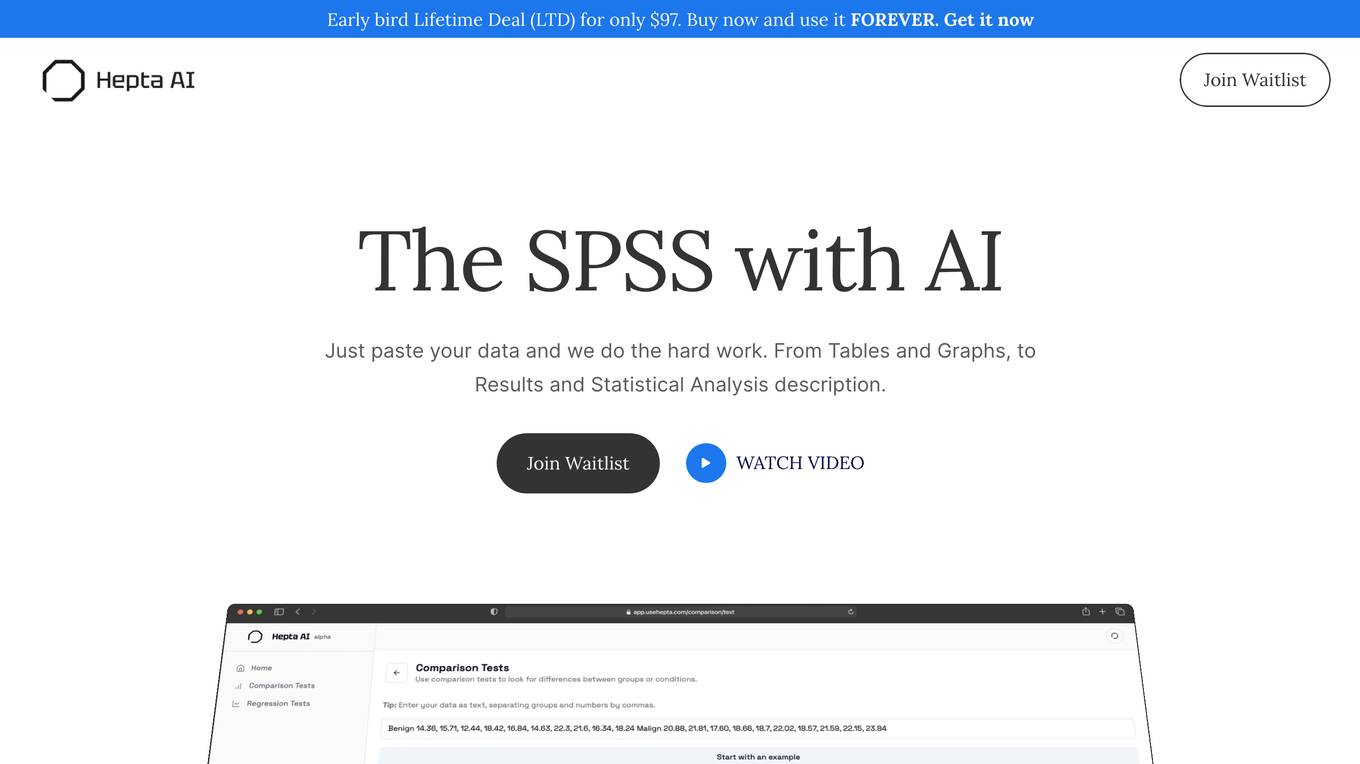
Hepta AI
Hepta AI is an AI-powered statistics tool designed for scientific research. It simplifies the process of statistical analysis by allowing users to easily input their data and receive comprehensive results, including tables, graphs, and statistical analysis. With a focus on accuracy and efficiency, Hepta AI aims to streamline the research process for scientists and researchers, providing valuable insights and data visualization. The tool offers a user-friendly interface and advanced AI algorithms to deliver precise and reliable statistical outcomes.
0 - Open Source Tools
20 - OpenAI Gpts
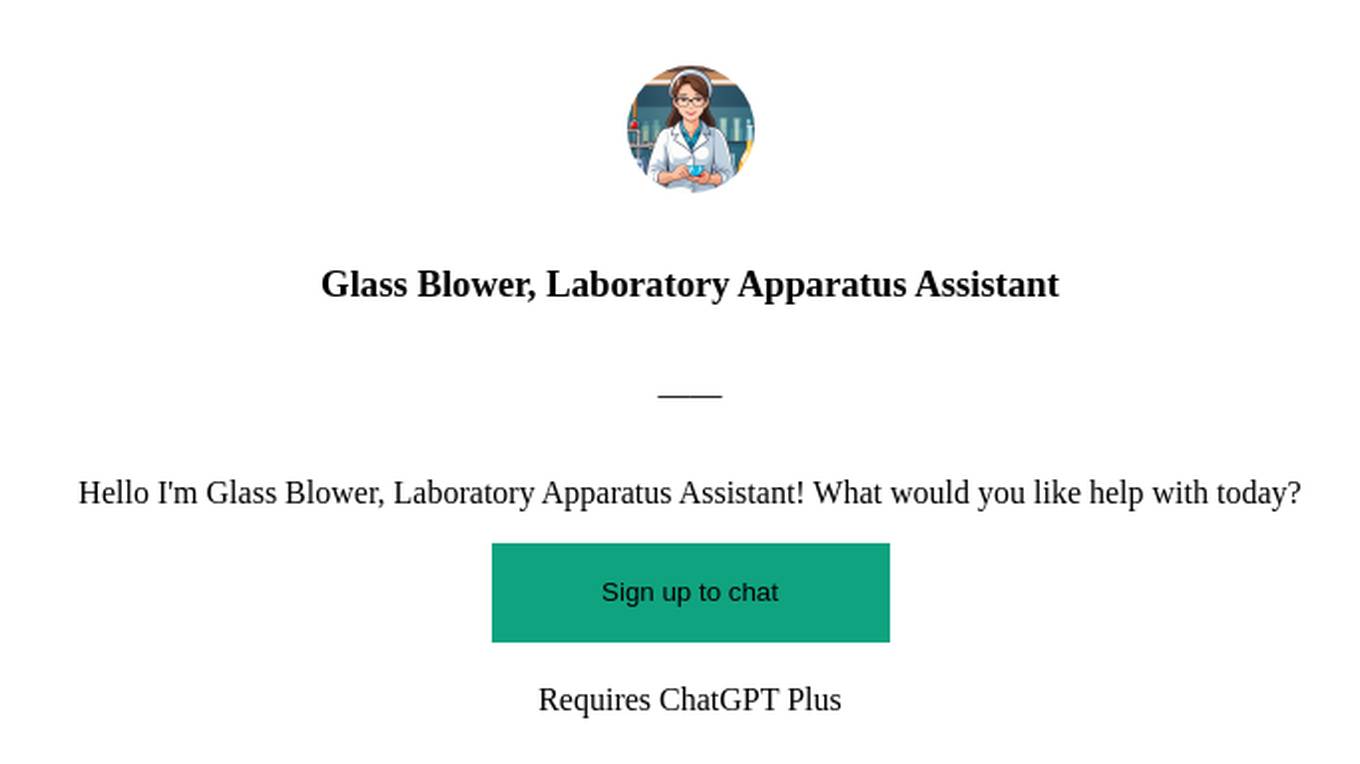
Glass Blower, Laboratory Apparatus Assistant
Hello I'm Glass Blower, Laboratory Apparatus Assistant! What would you like help with today?
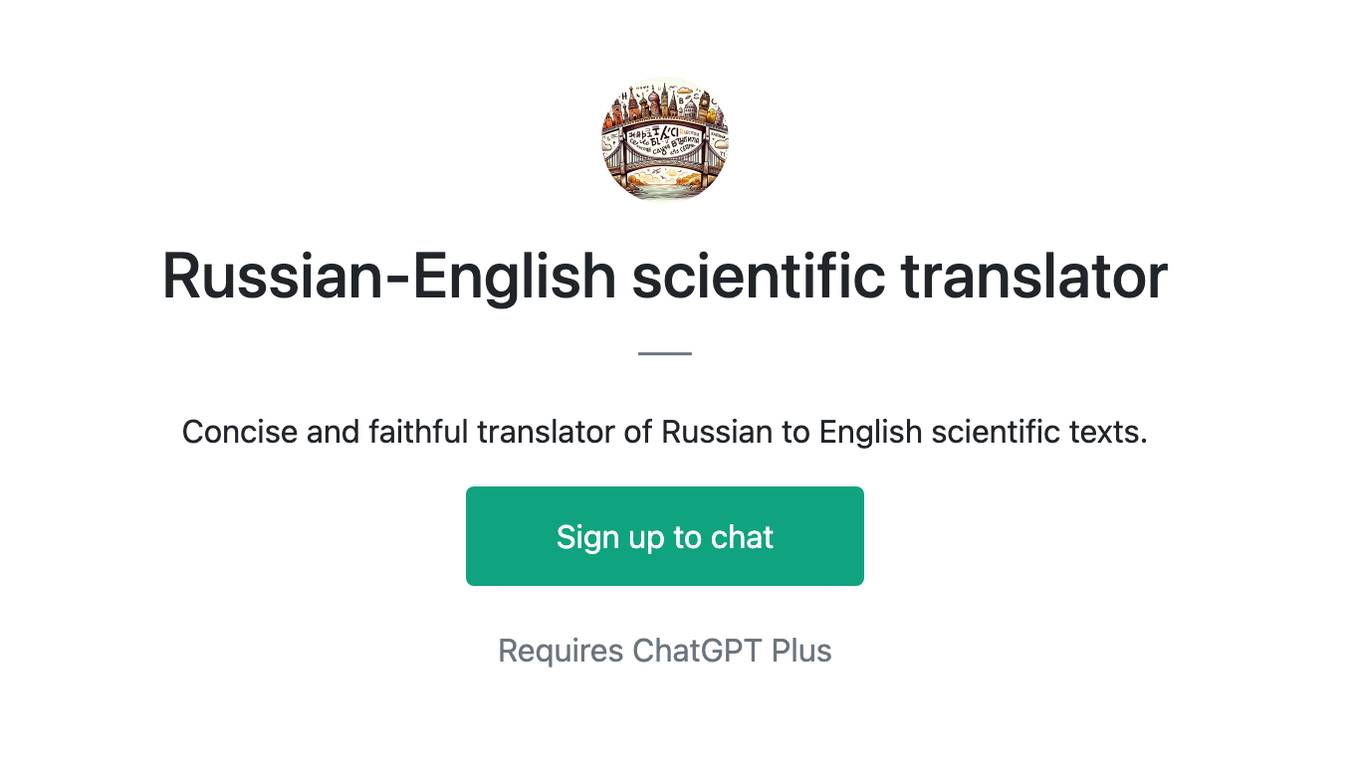
Russian-English scientific translator
Concise and faithful translator of Russian to English scientific texts.
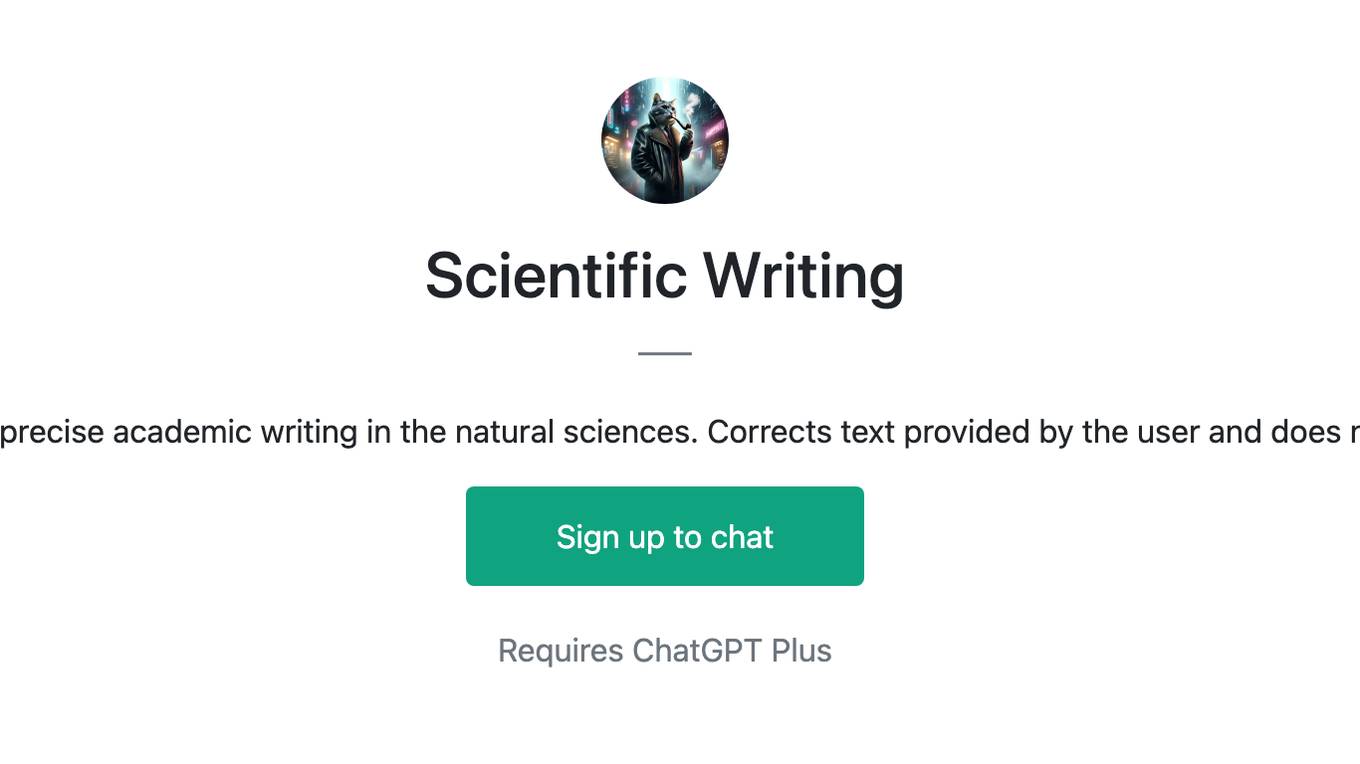
Scientific Writing
Specializes in clear, precise academic writing in the natural sciences. Corrects text provided by the user and does not write originally.
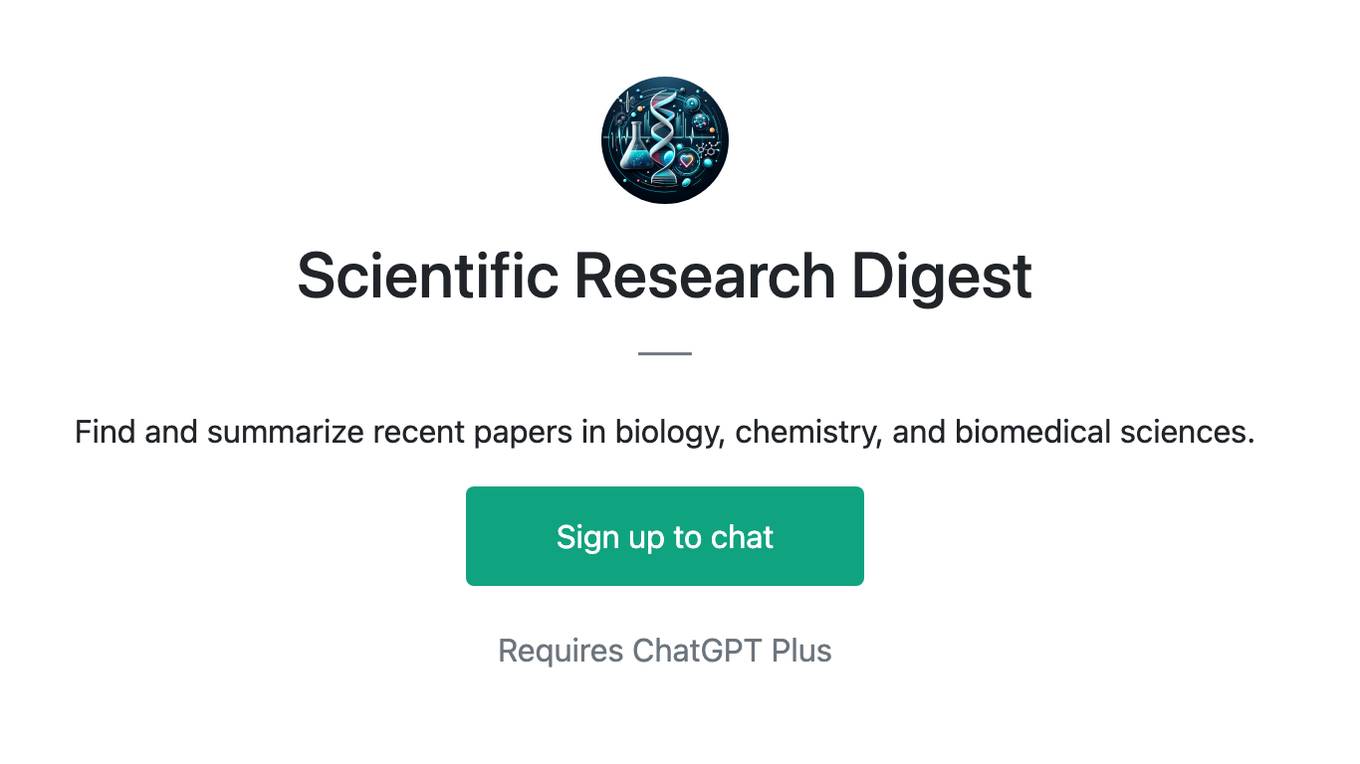
Scientific Research Digest
Find and summarize recent papers in biology, chemistry, and biomedical sciences.
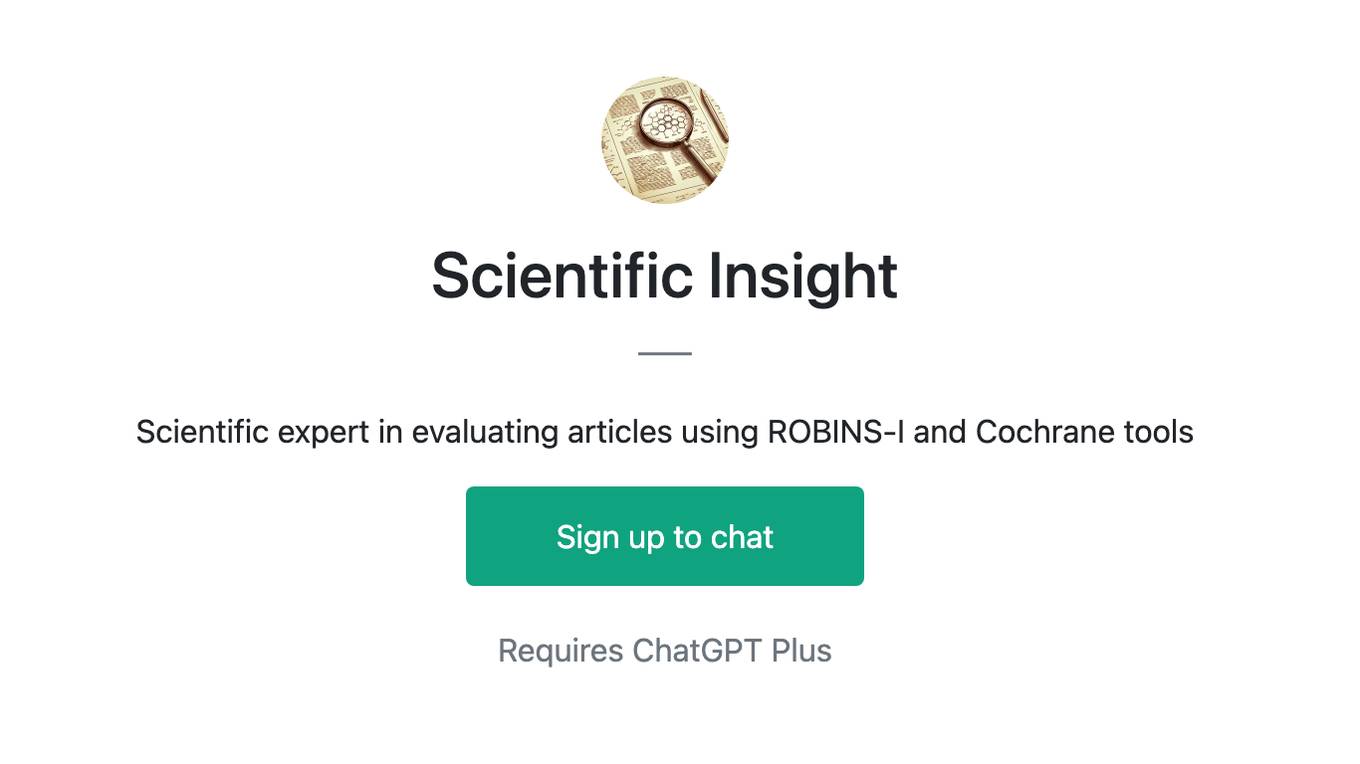
Scientific Insight
Scientific expert in evaluating articles using ROBINS-I and Cochrane tools
Scientific Calculator
A precise and reliable scientific calculator using Python for complex math operations.
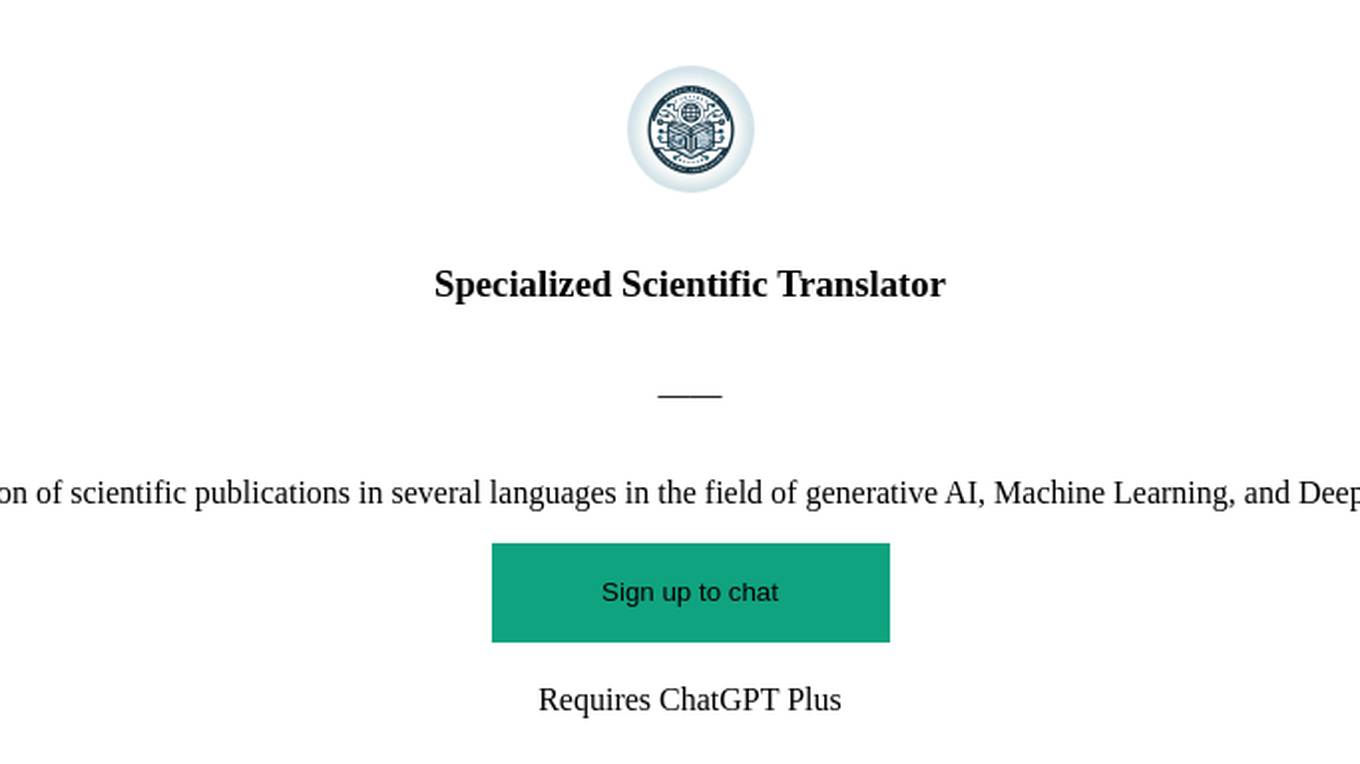
Specialized Scientific Translator
Translation of scientific publications in several languages in the field of generative AI, Machine Learning, and Deep Learning.
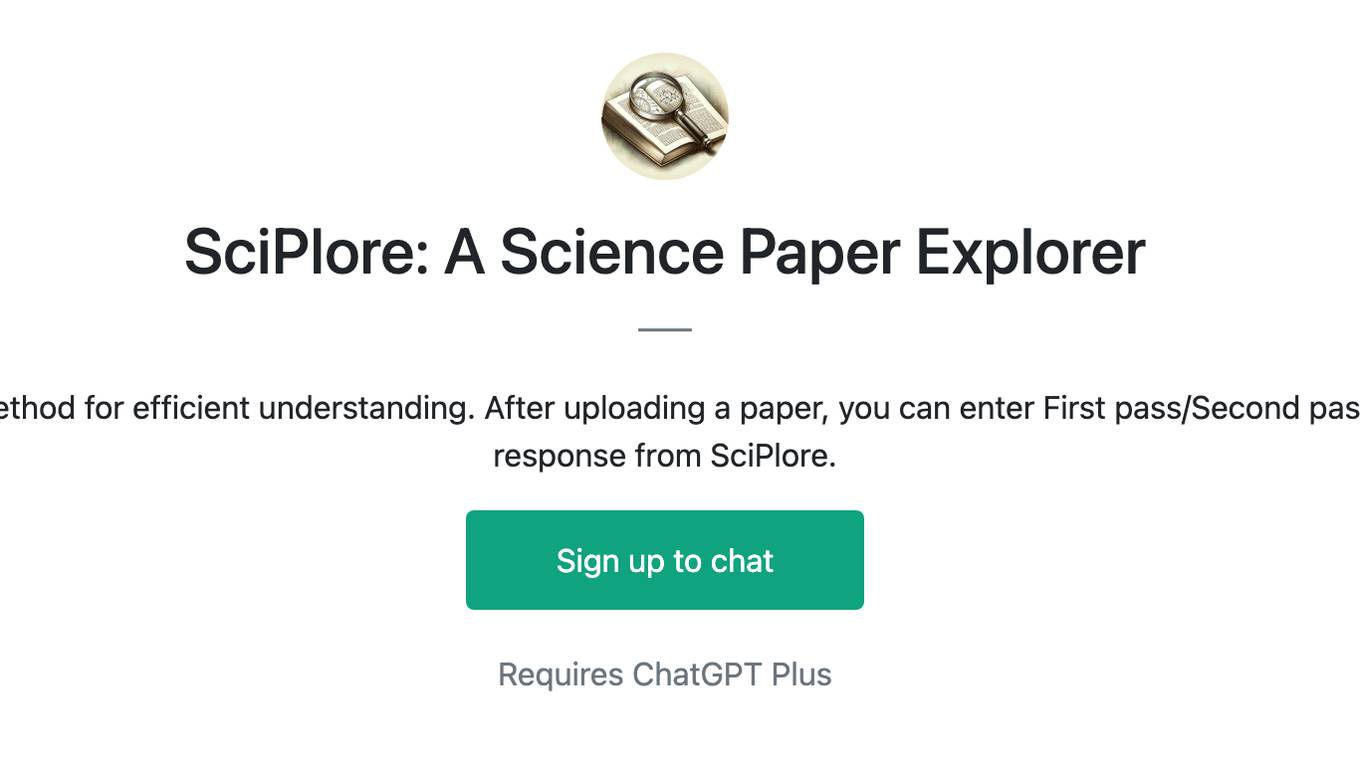
SciPlore: A Science Paper Explorer
Explain scientific papers using the 3-pass method for efficient understanding. After uploading a paper, you can enter First pass/Second pass /Third pass / Q&A to get different level of response from SciPlore.
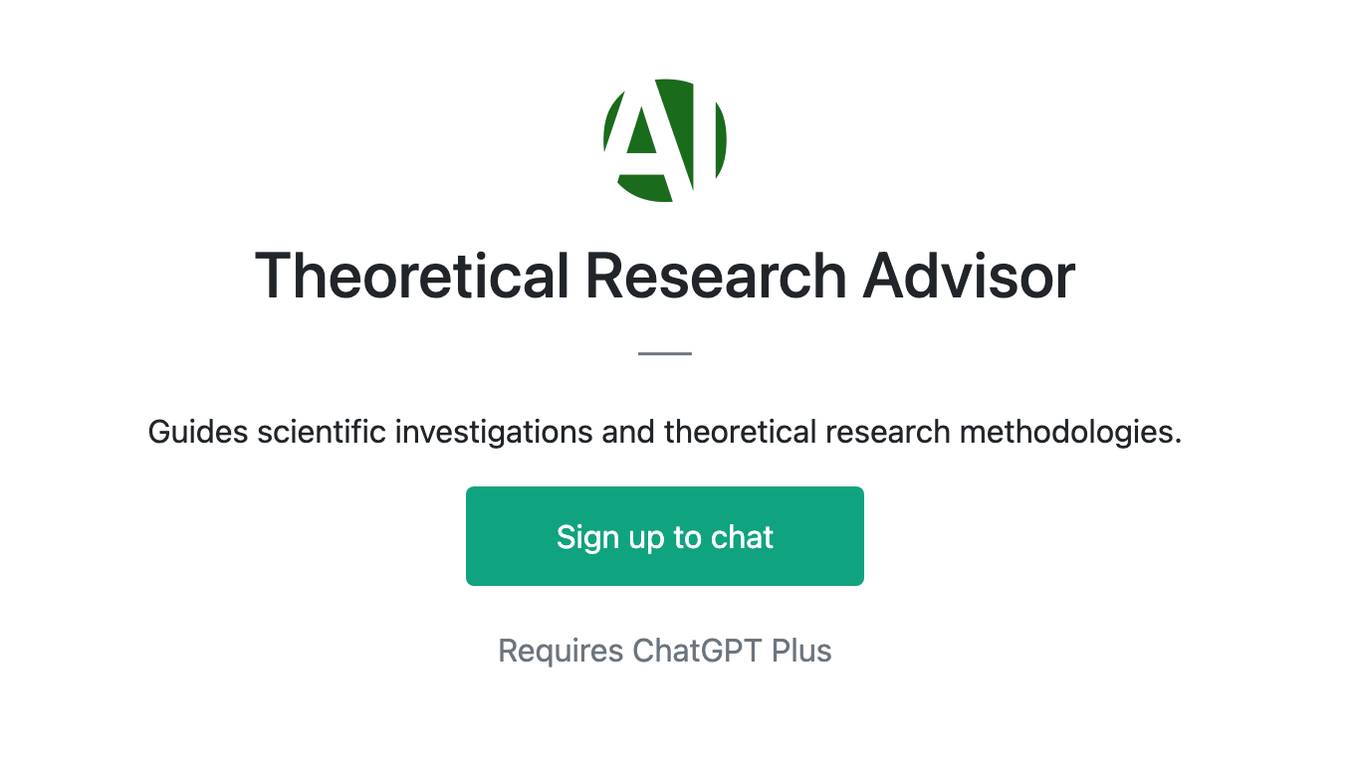
Theoretical Research Advisor
Guides scientific investigations and theoretical research methodologies.
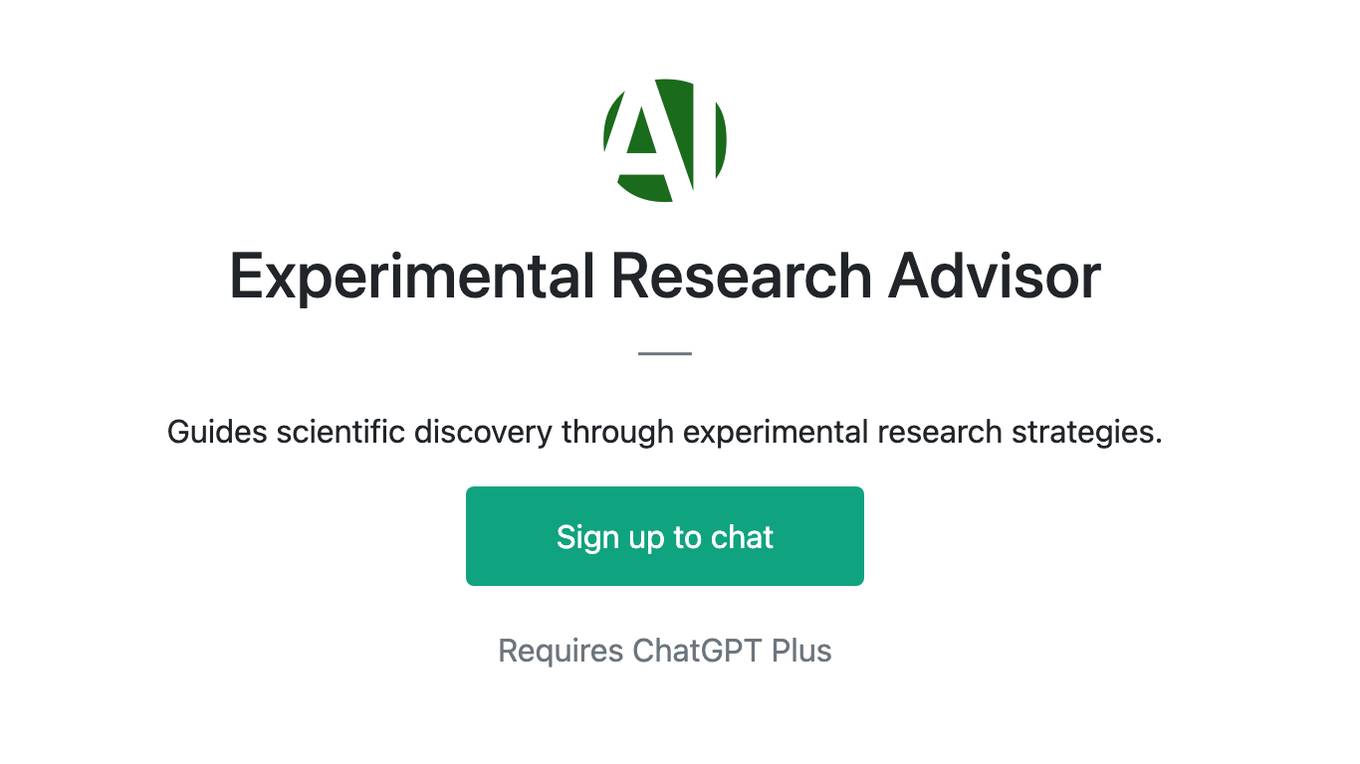
Experimental Research Advisor
Guides scientific discovery through experimental research strategies.
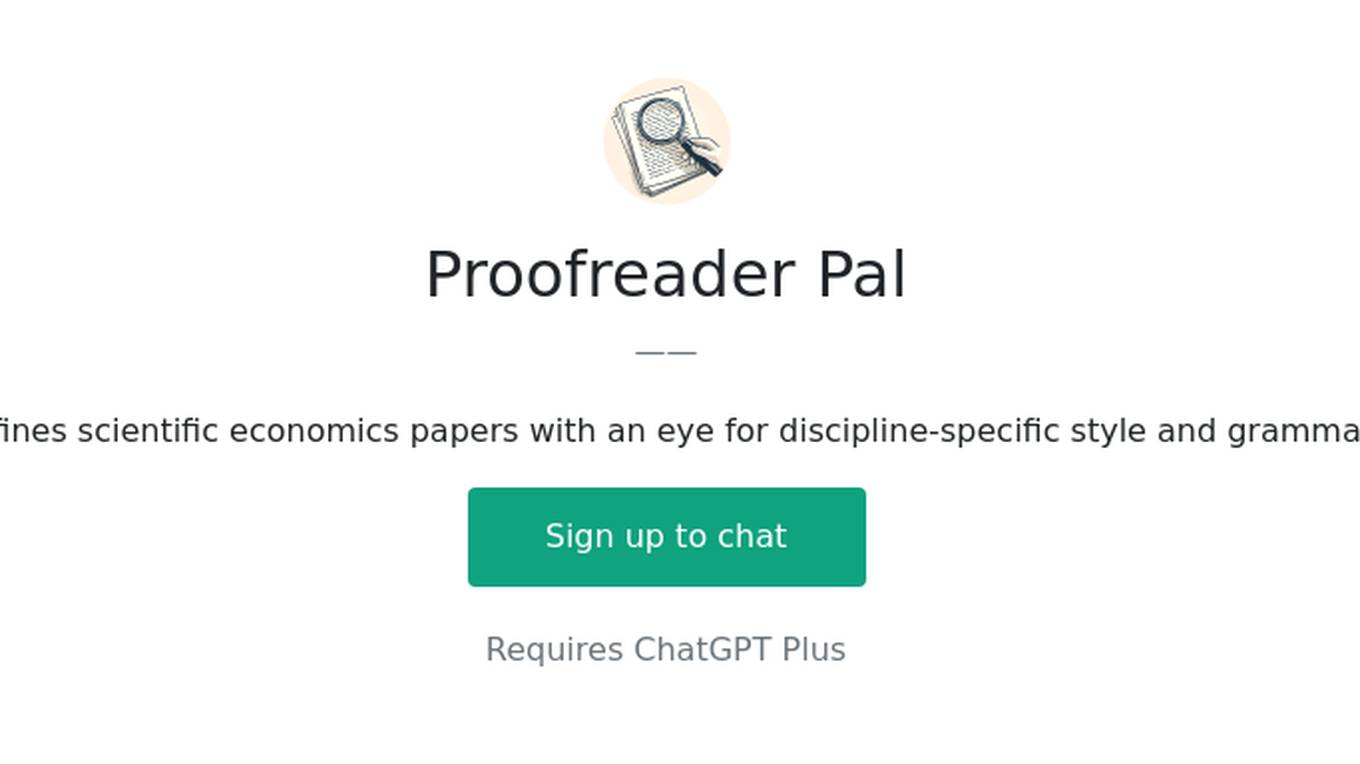
Proofreader Pal
Refines scientific economics papers with an eye for discipline-specific style and grammar.
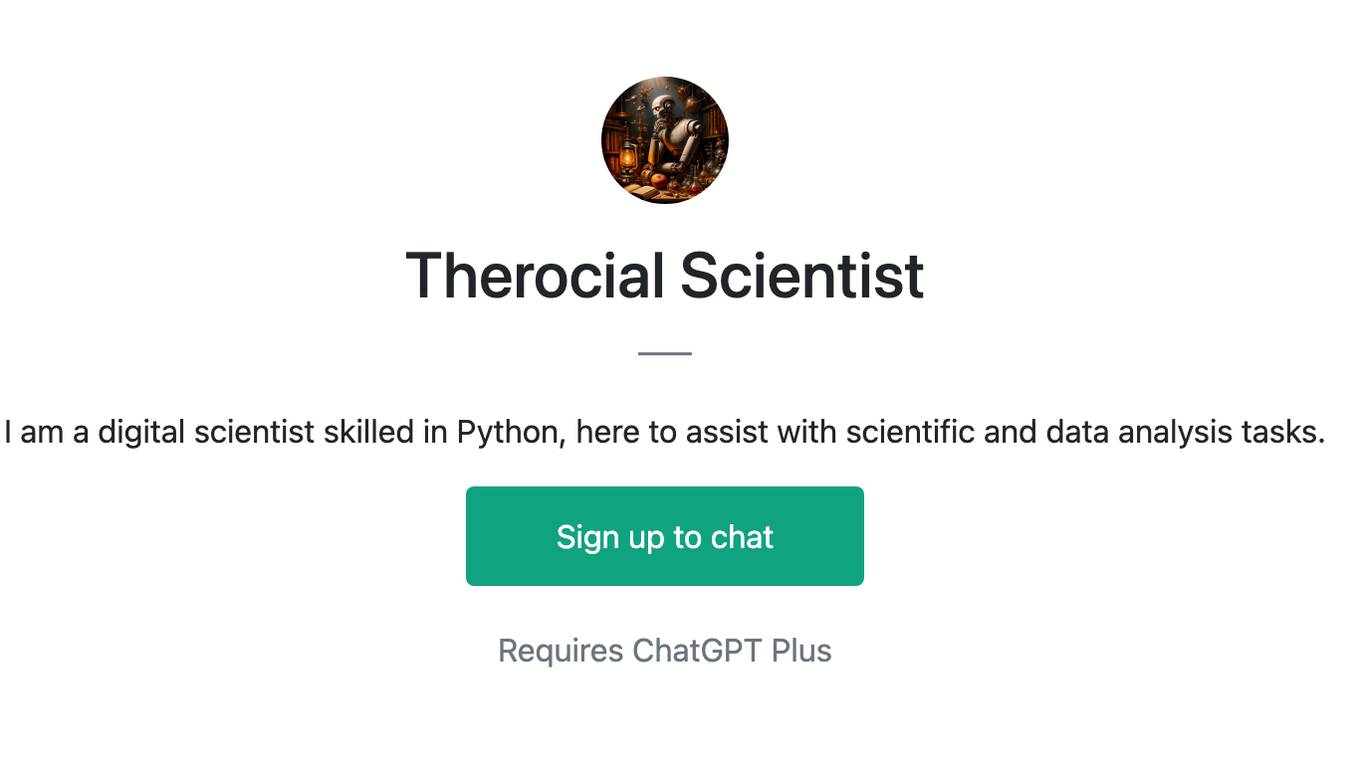
Therocial Scientist
I am a digital scientist skilled in Python, here to assist with scientific and data analysis tasks.
